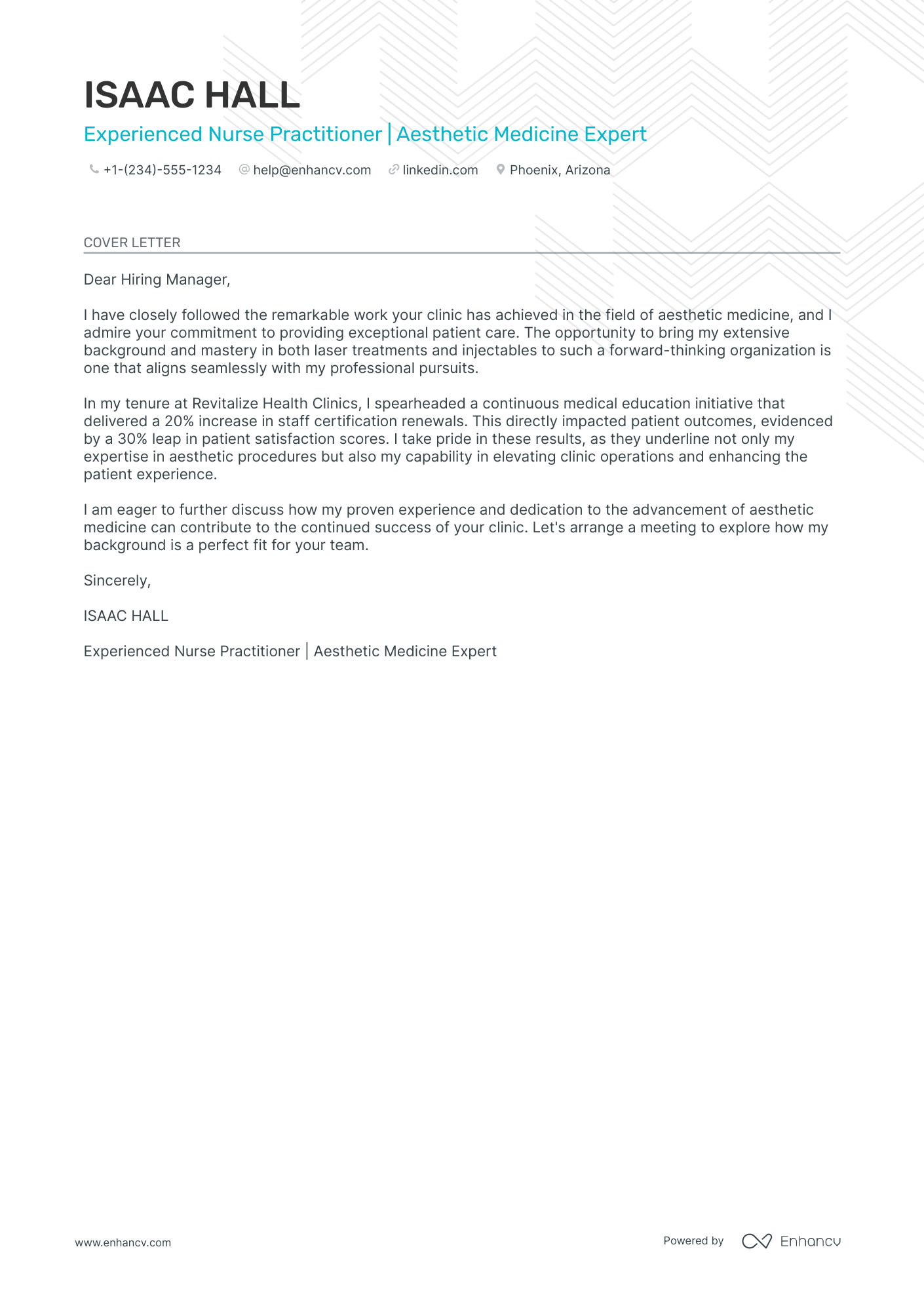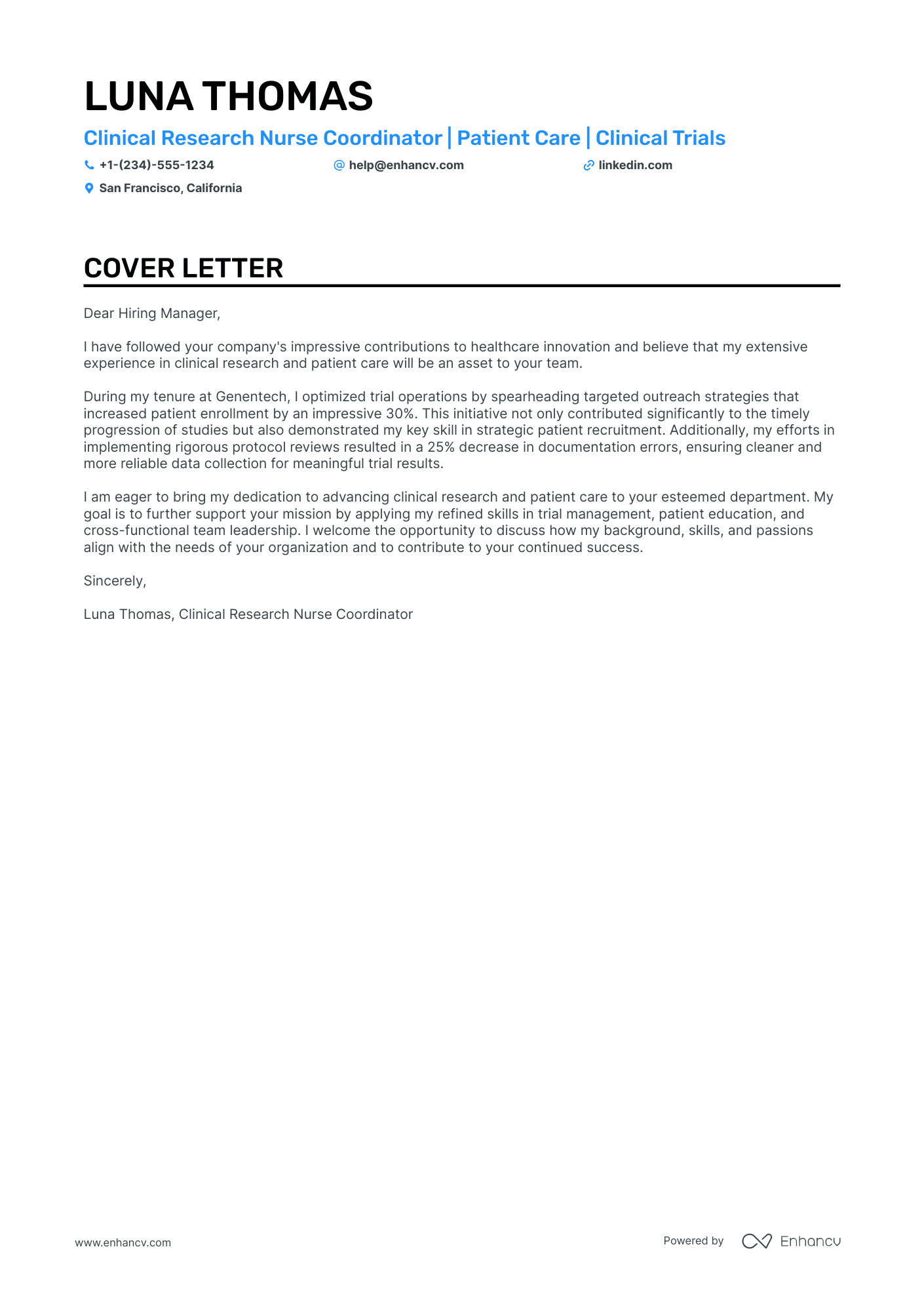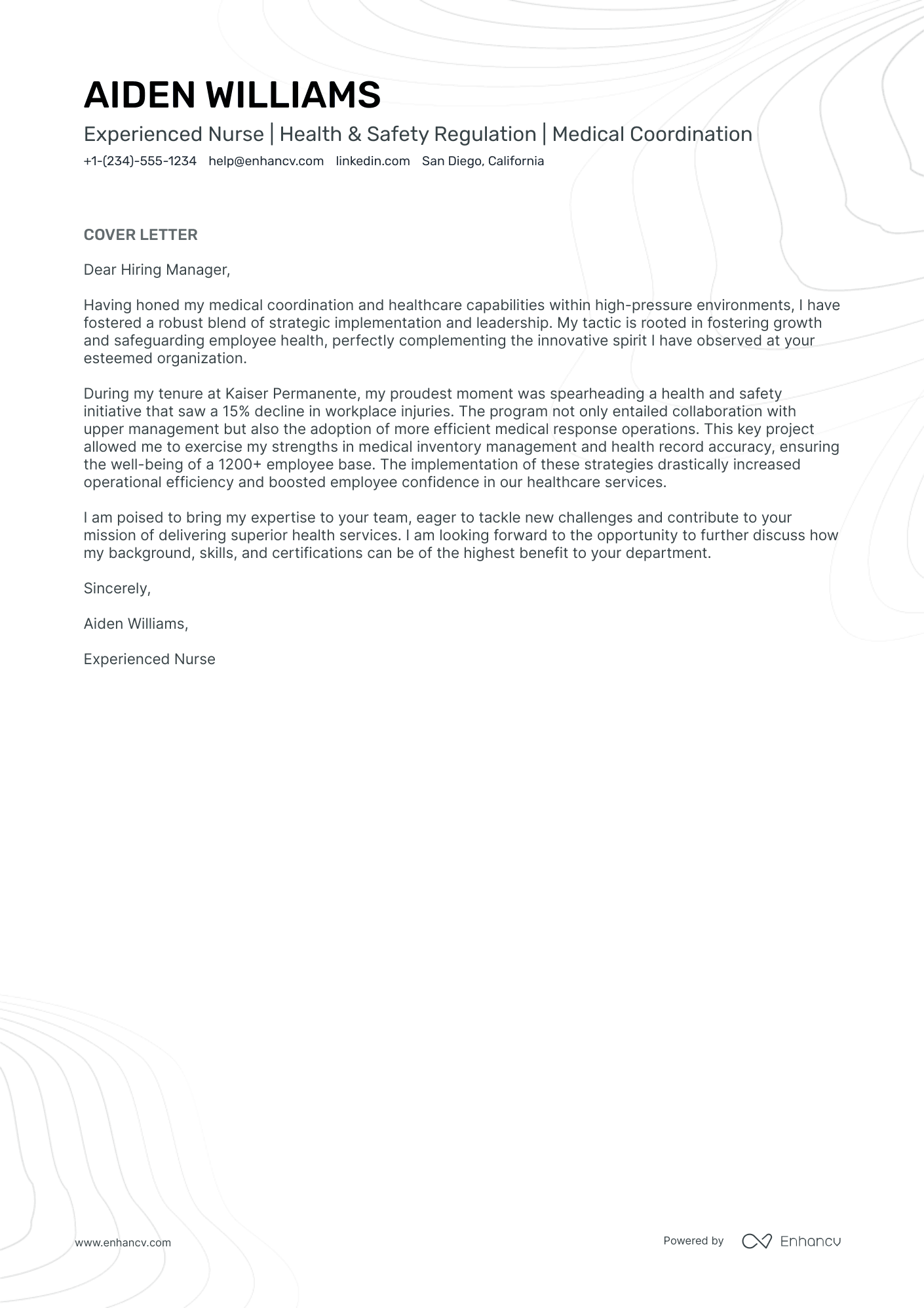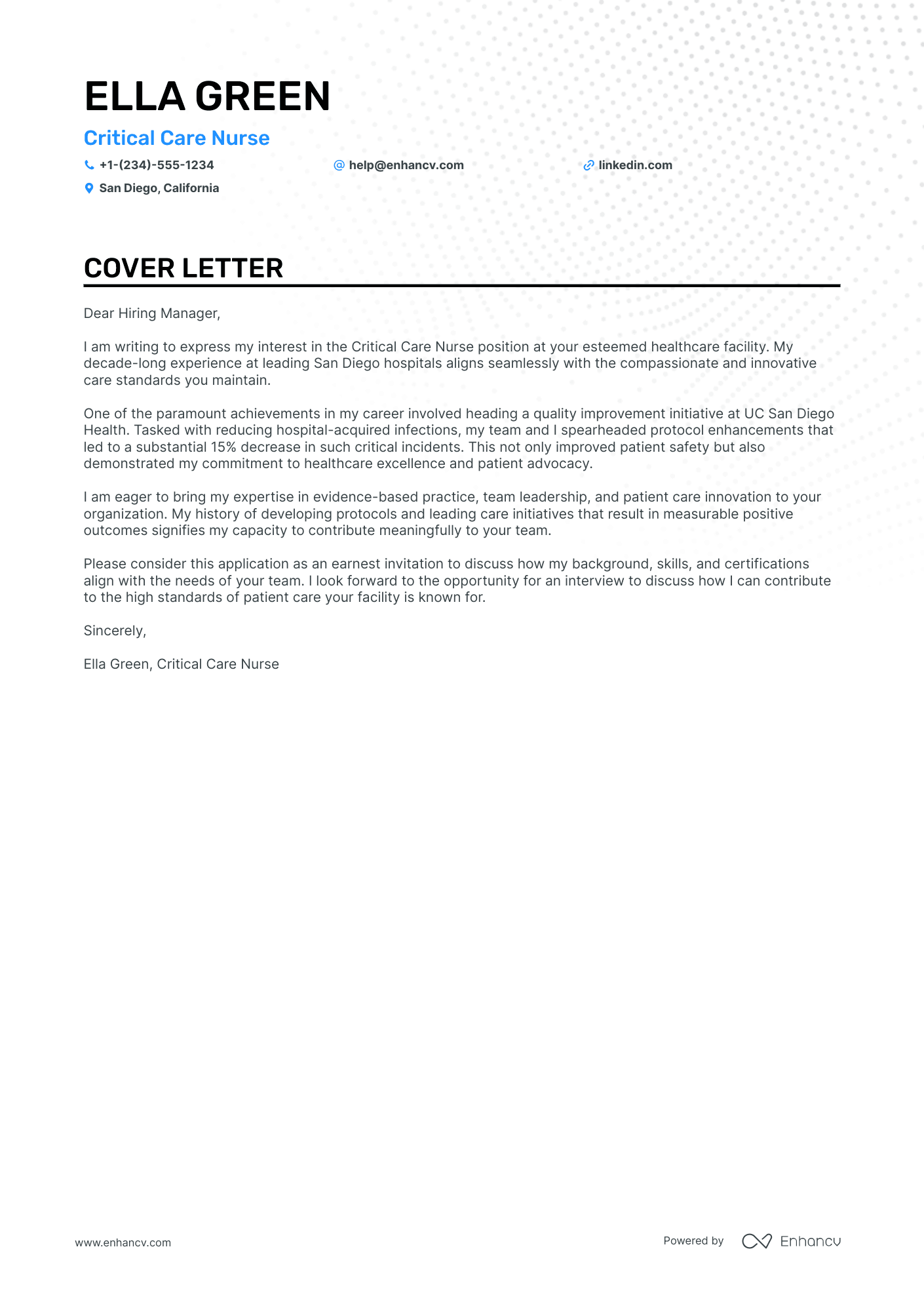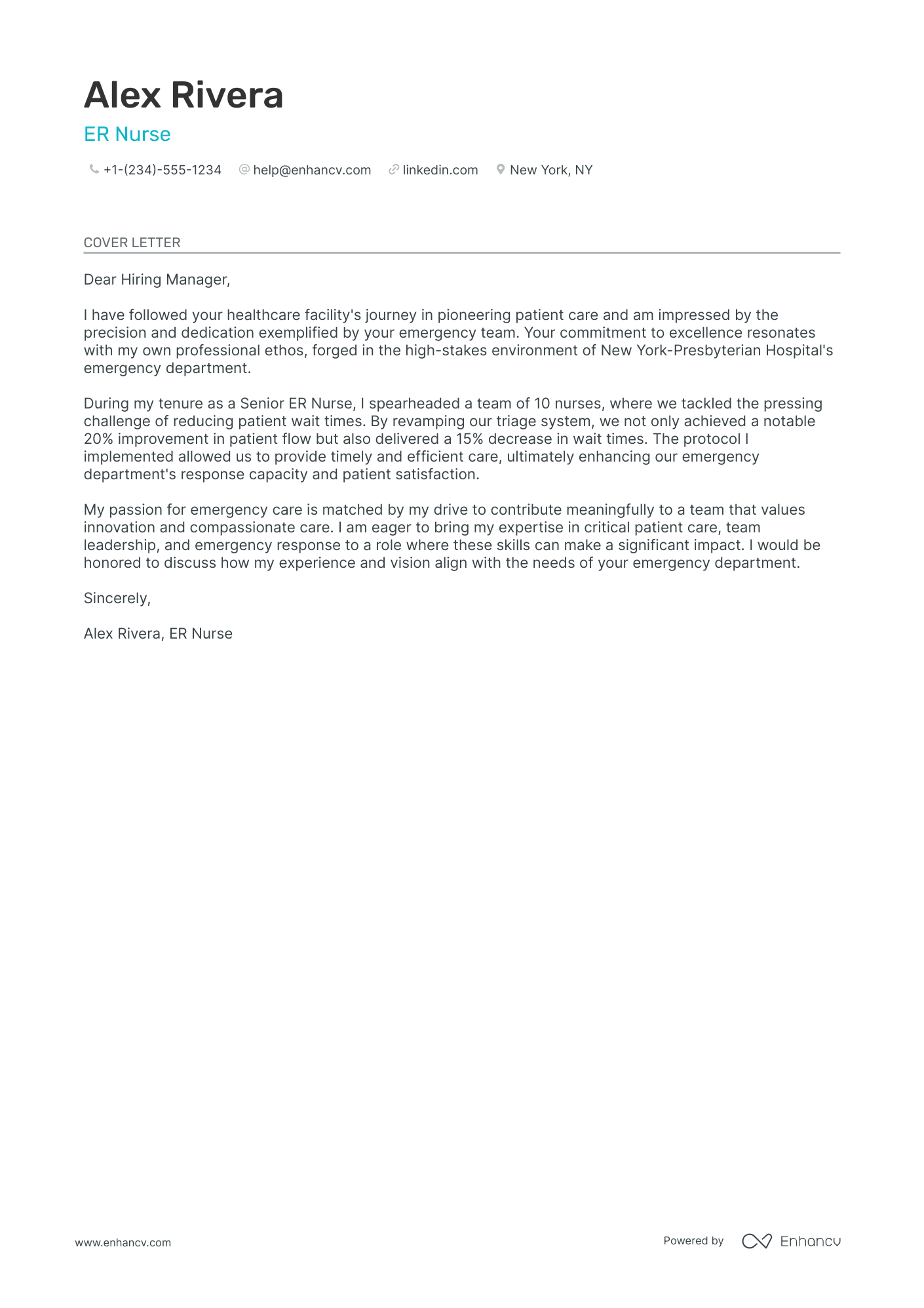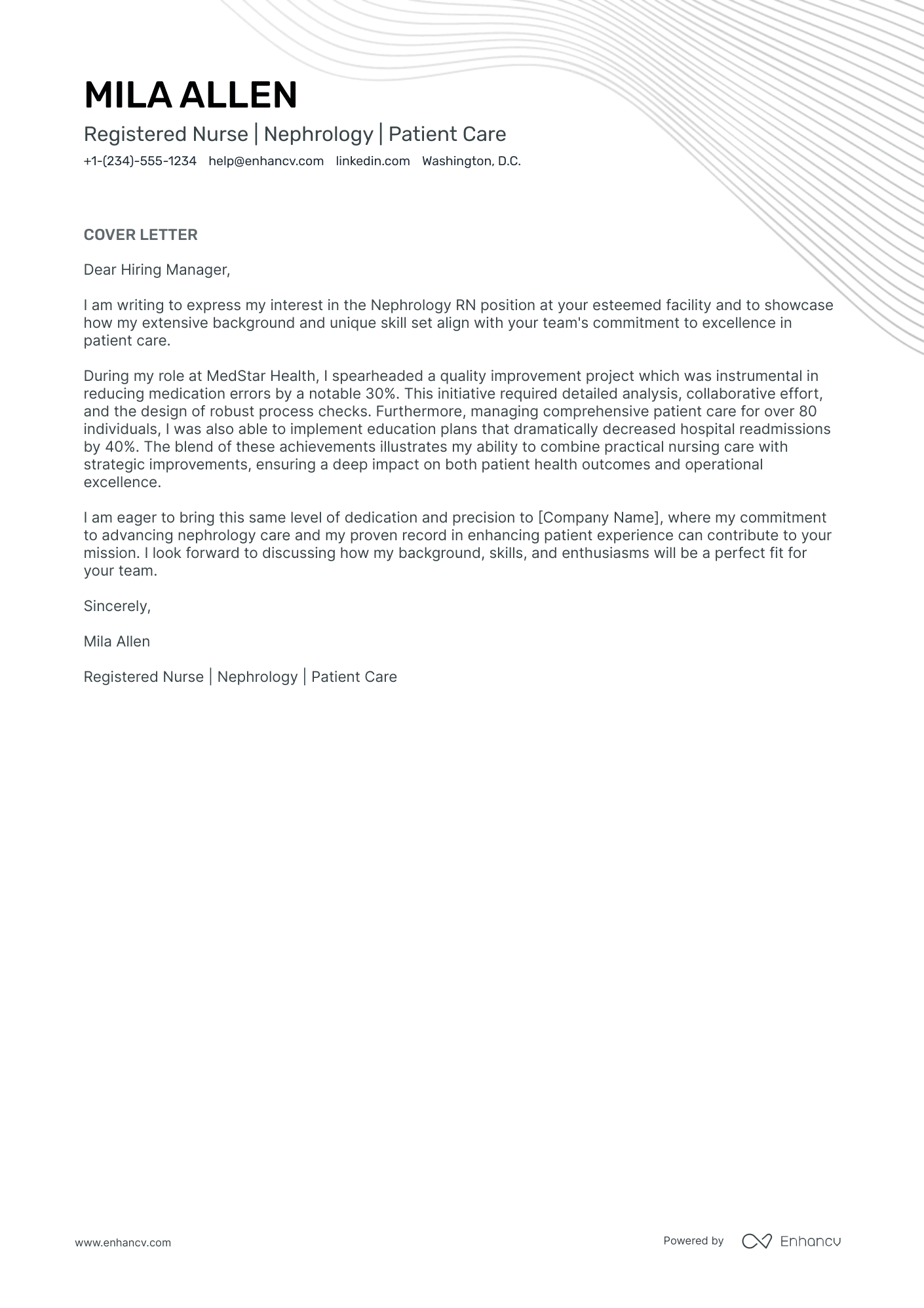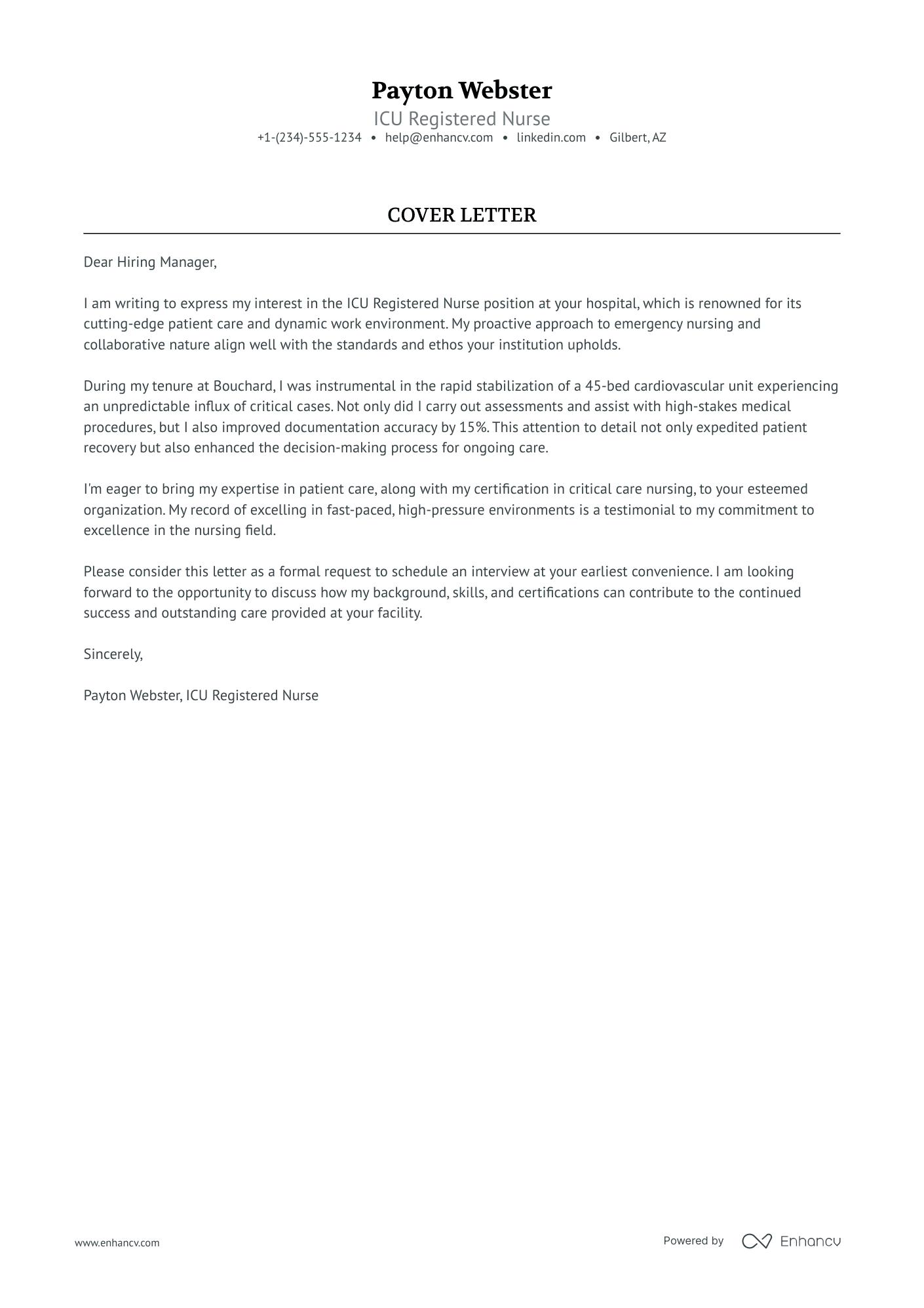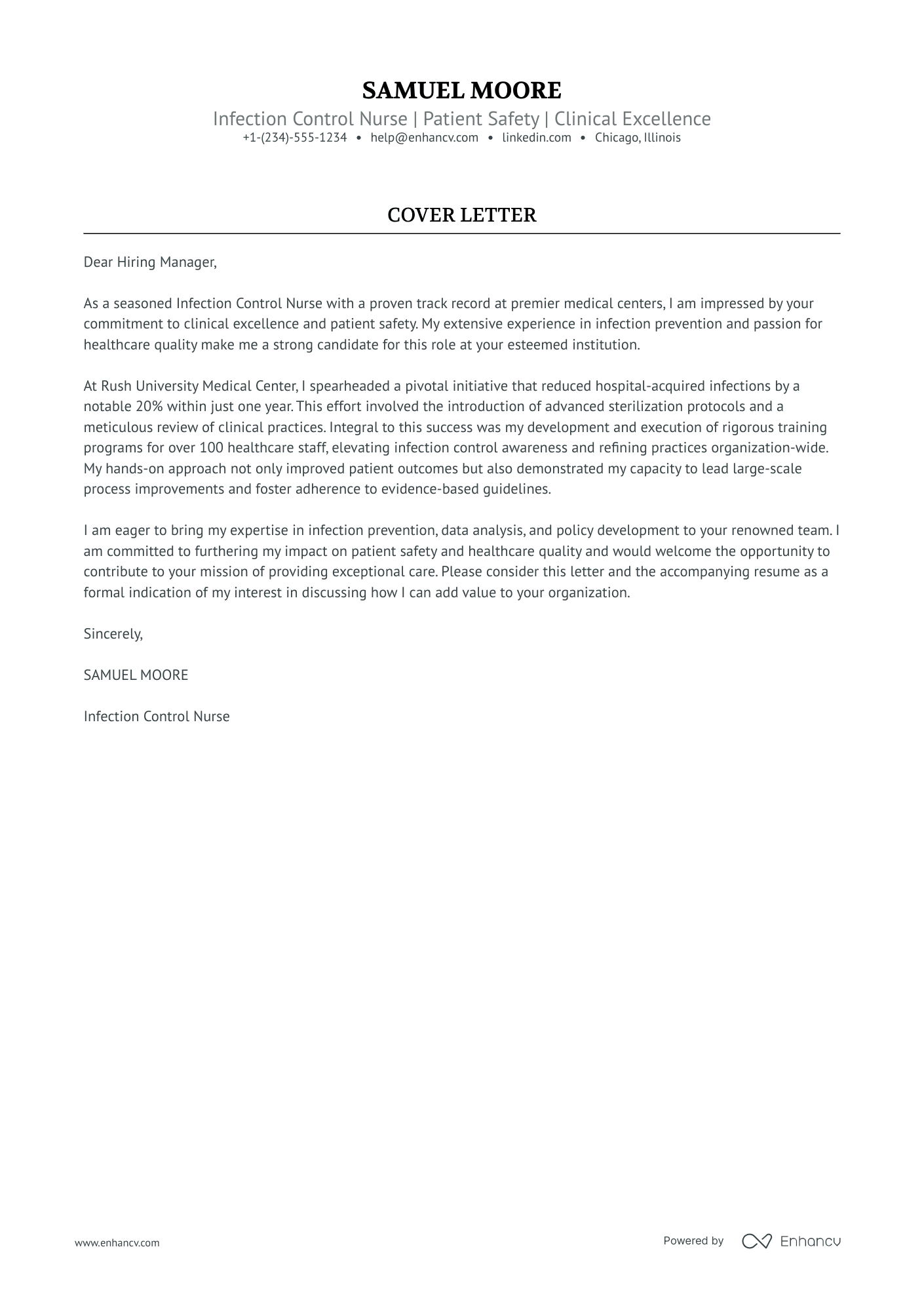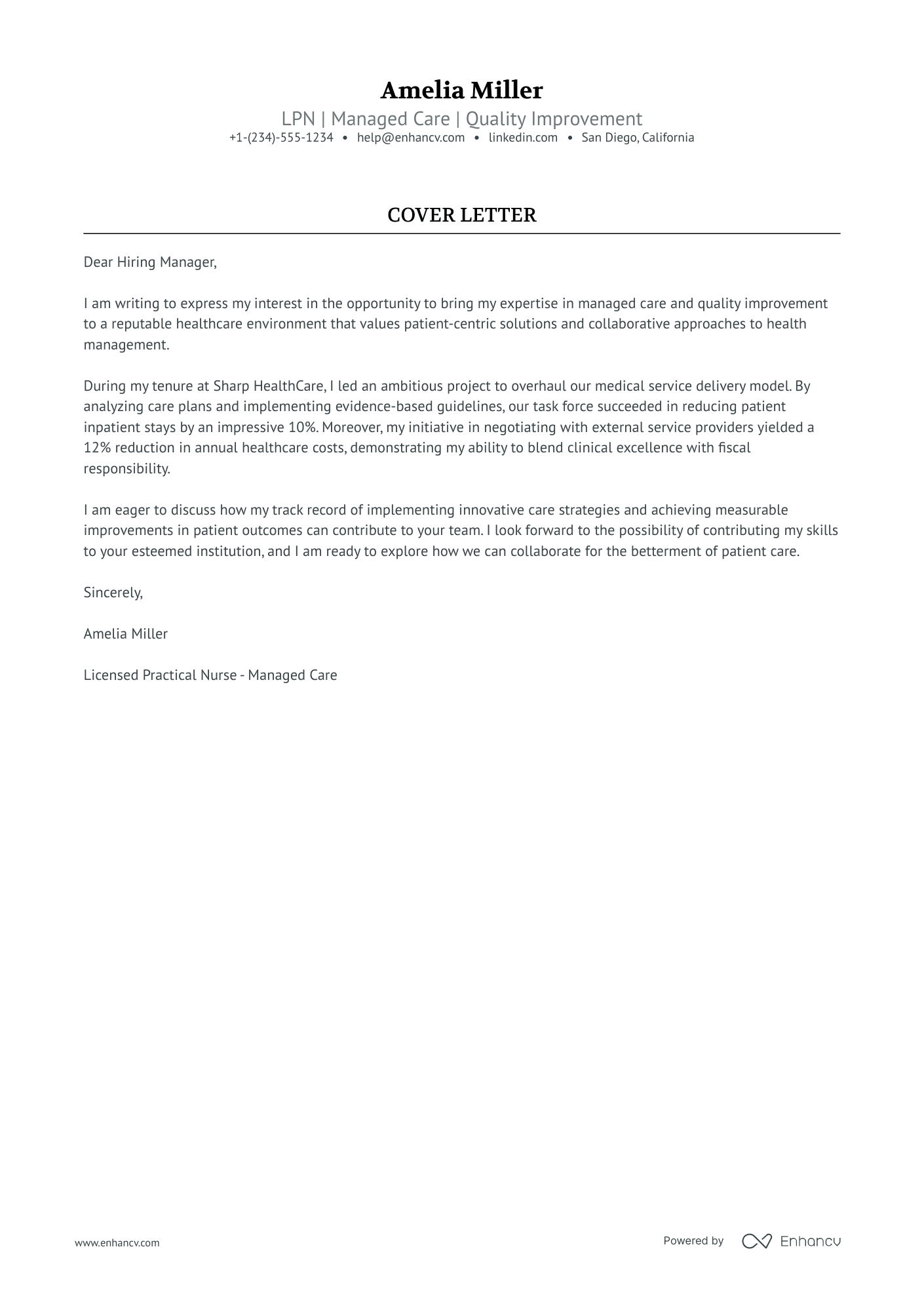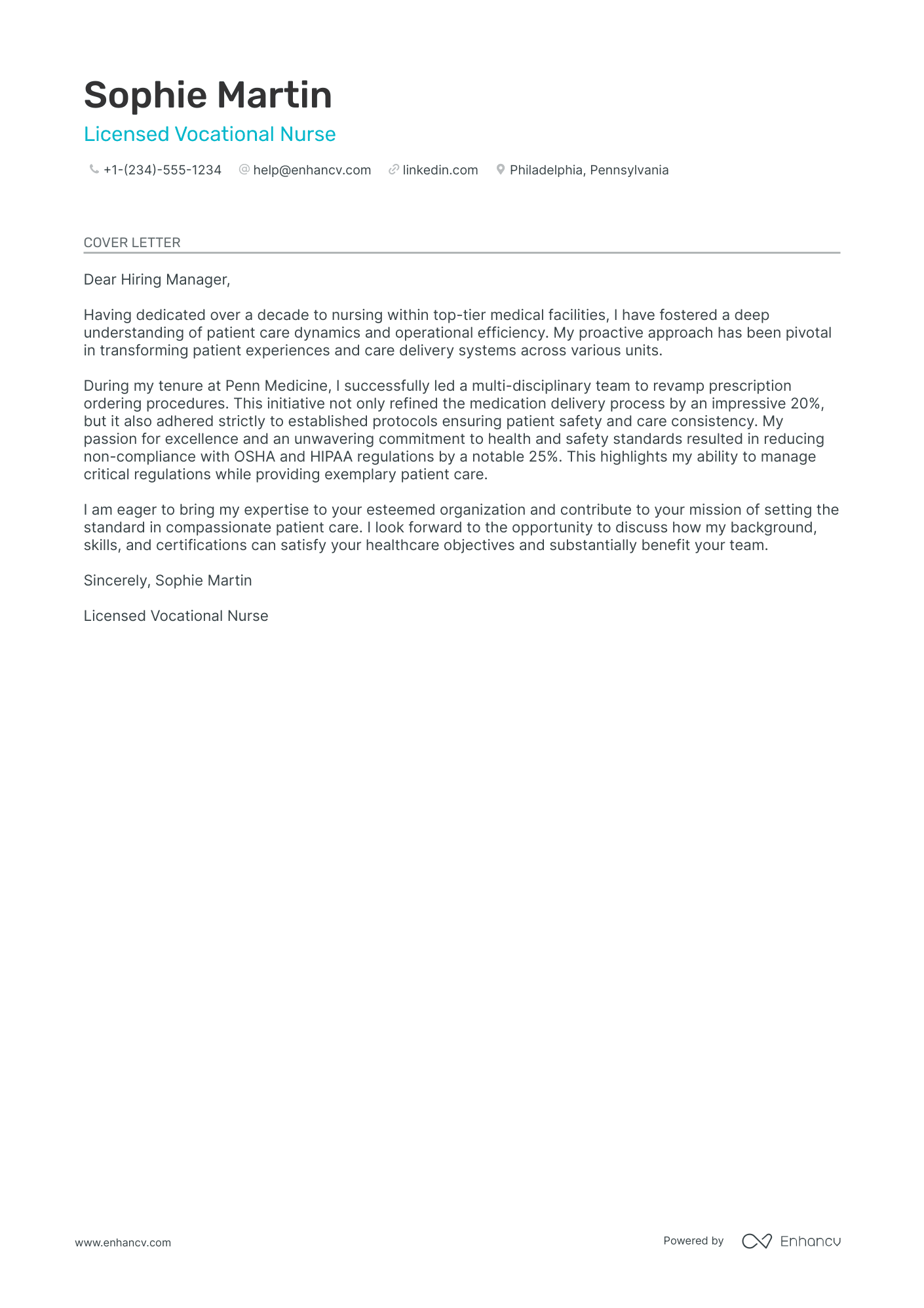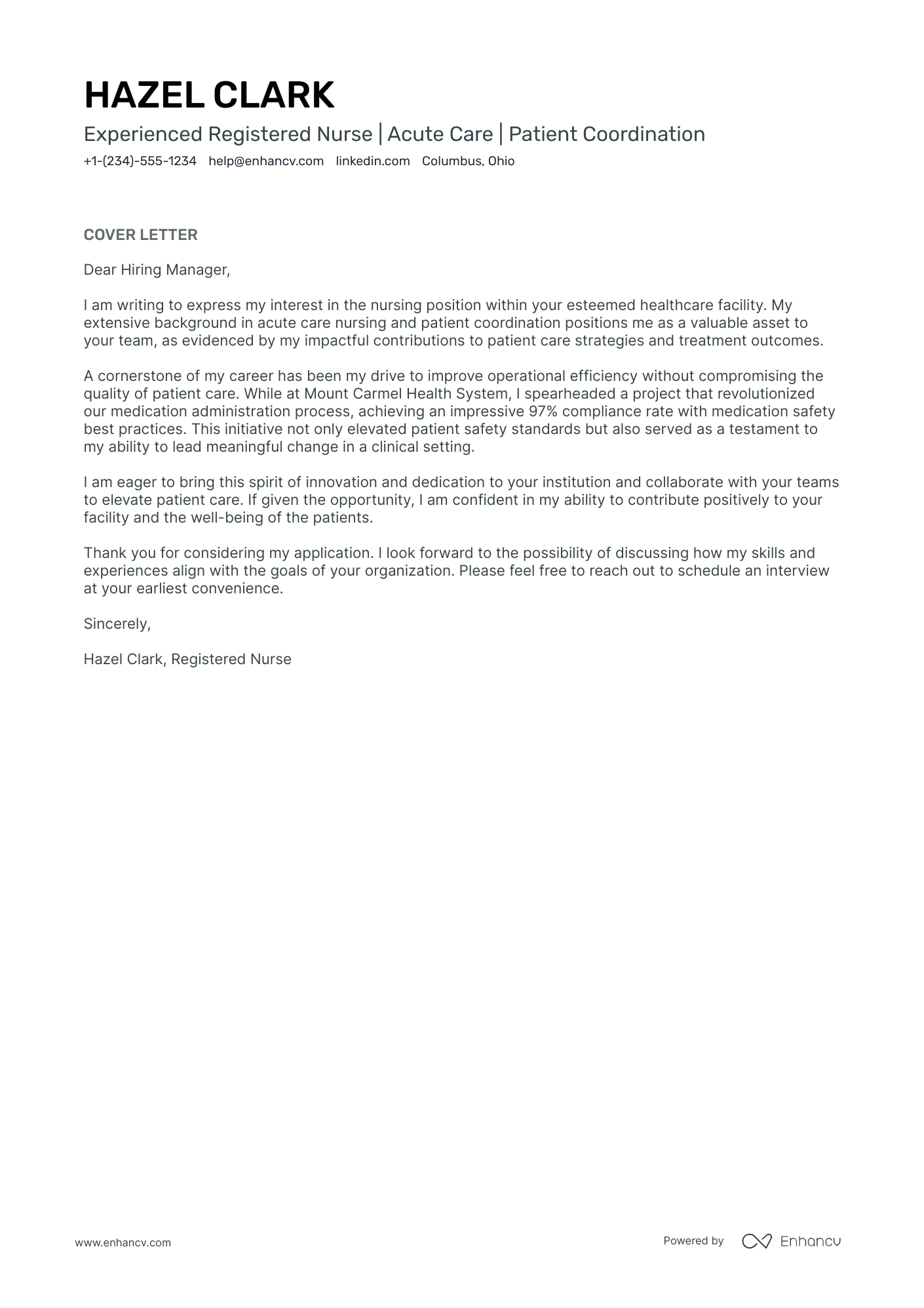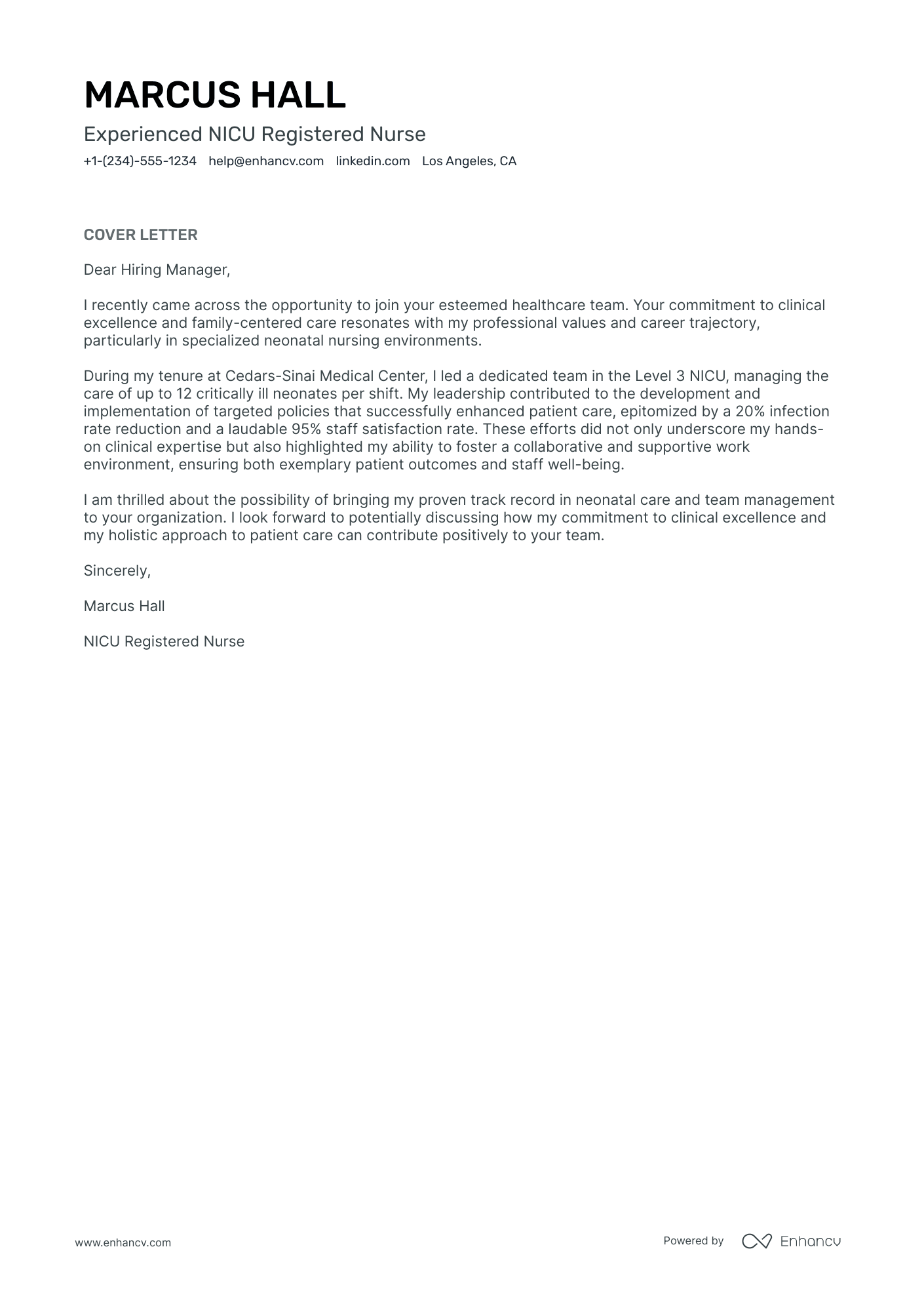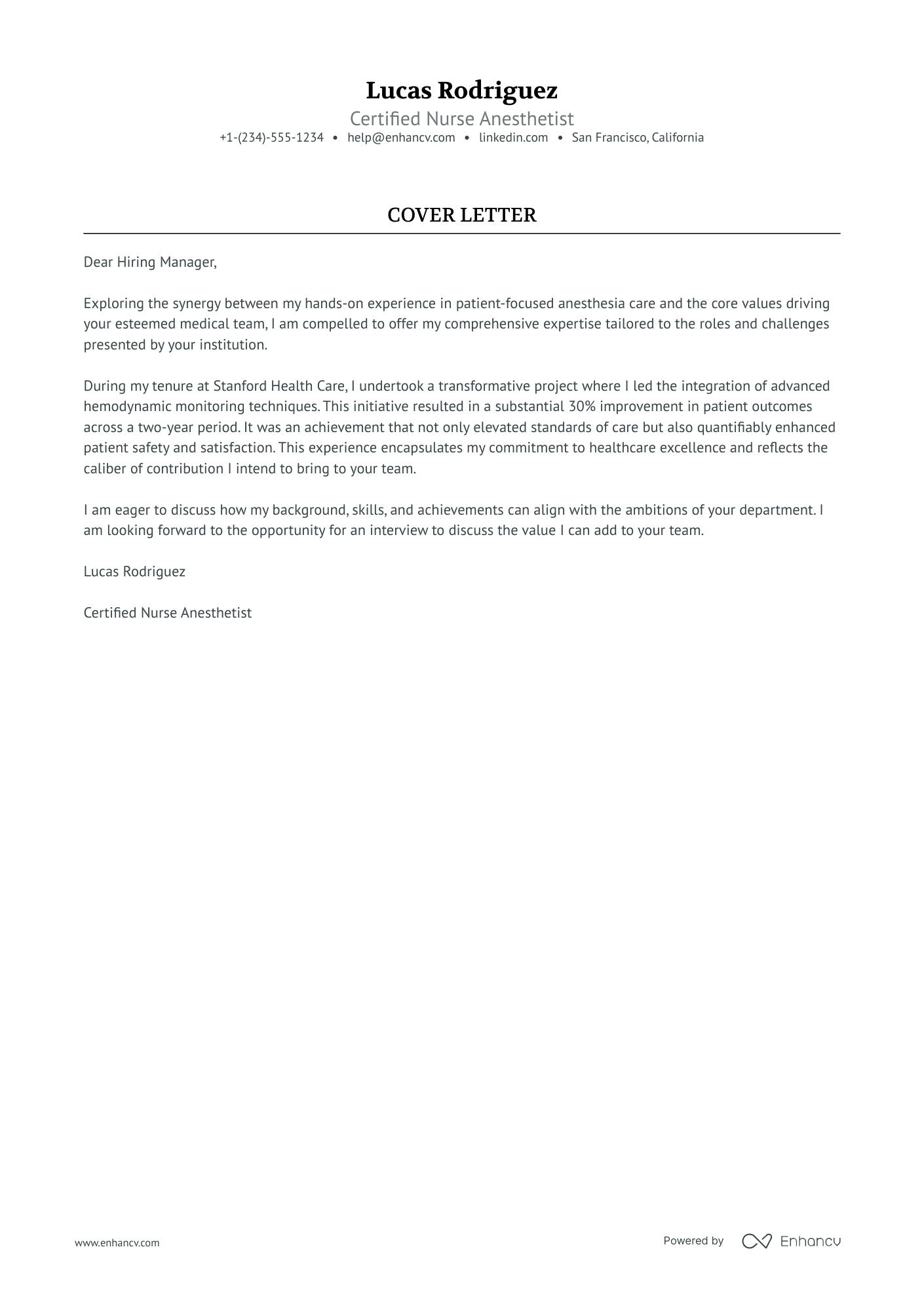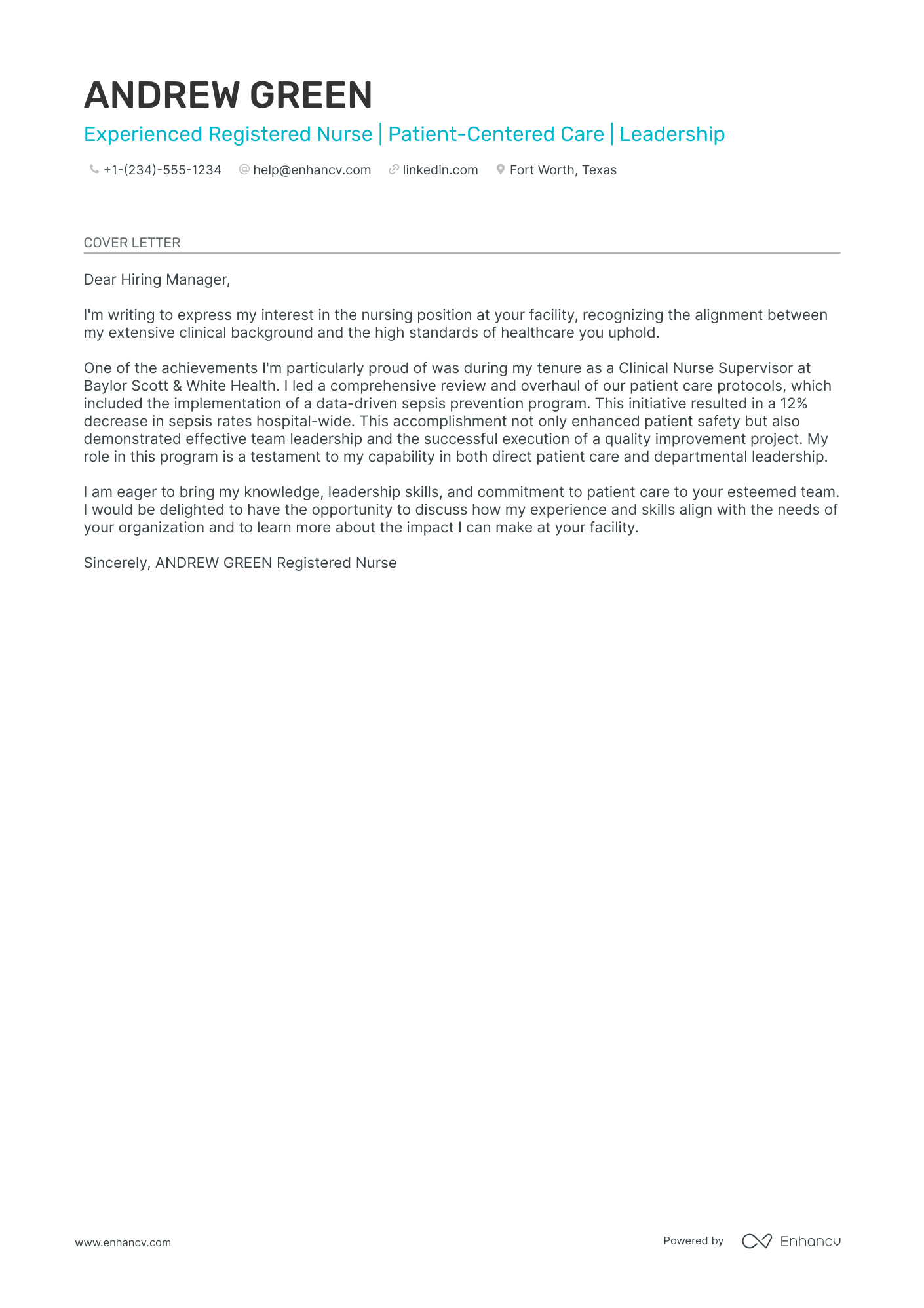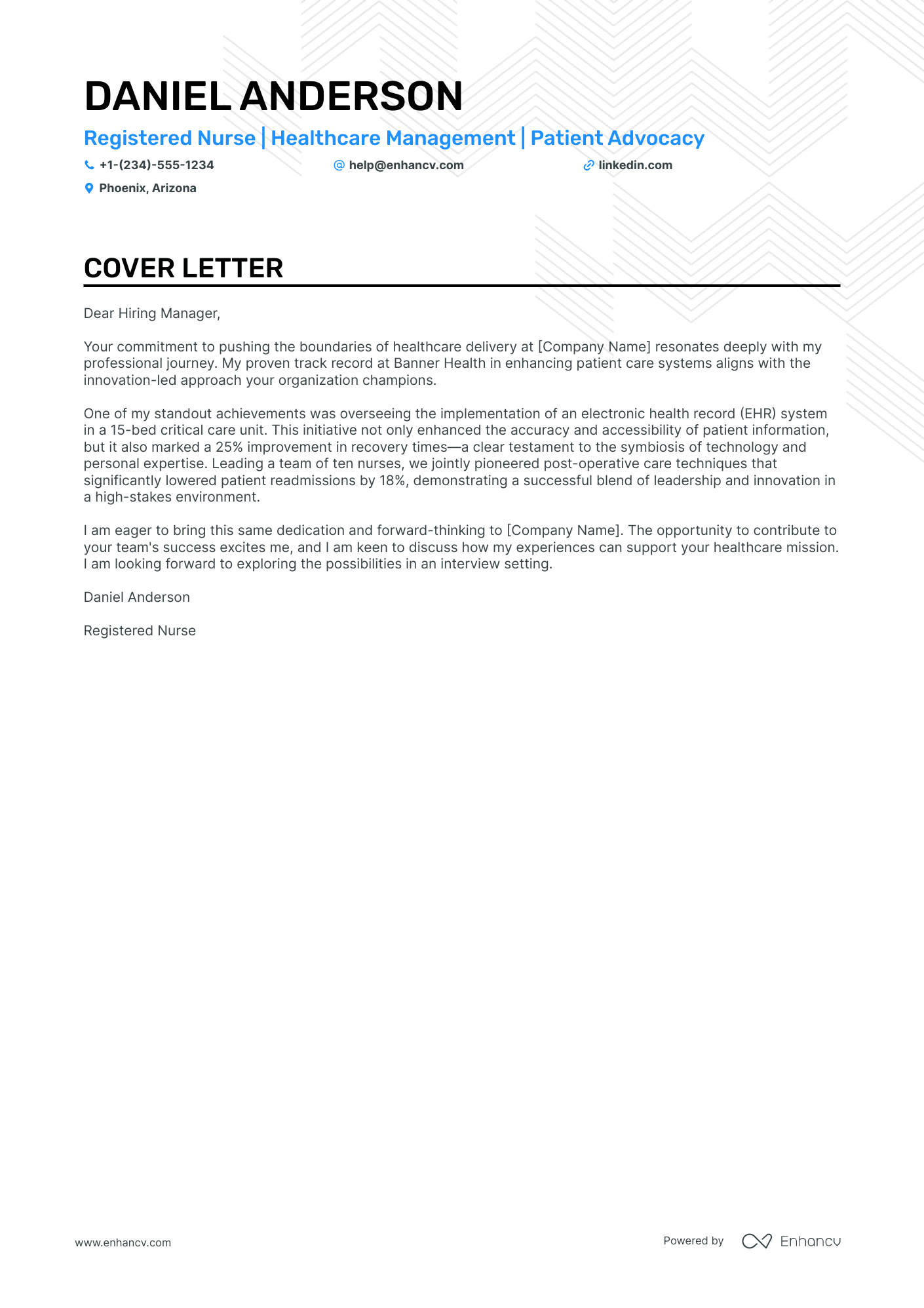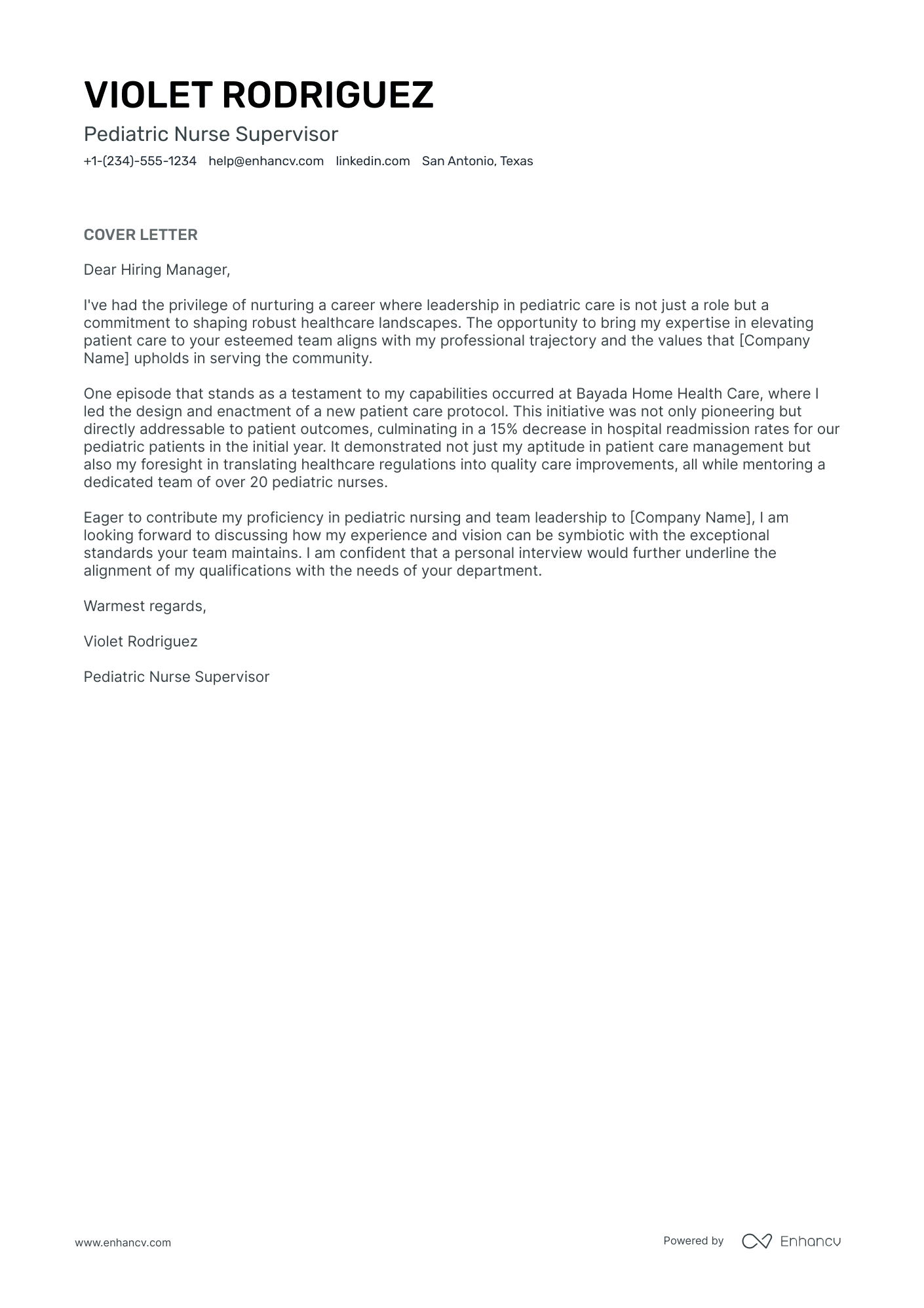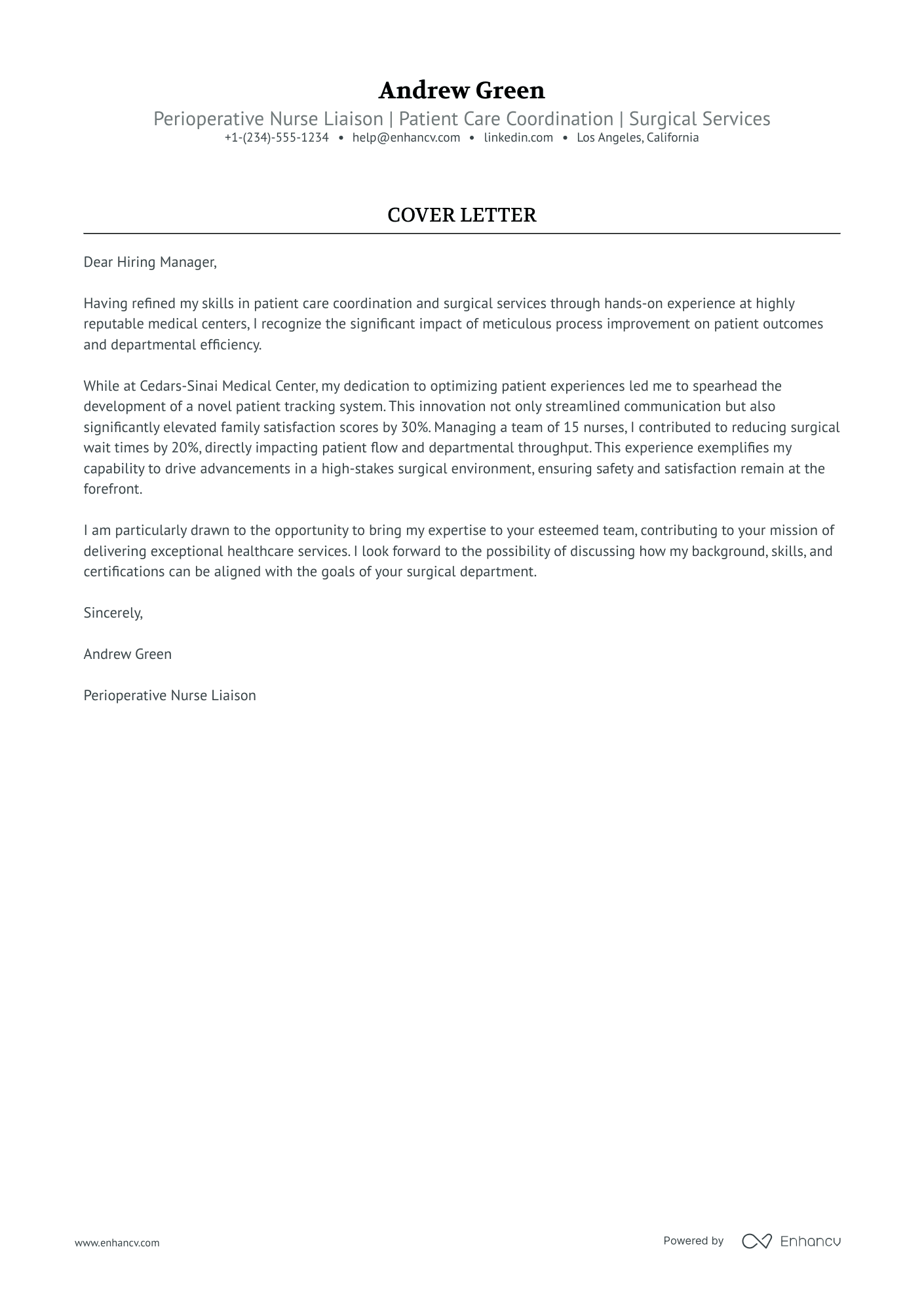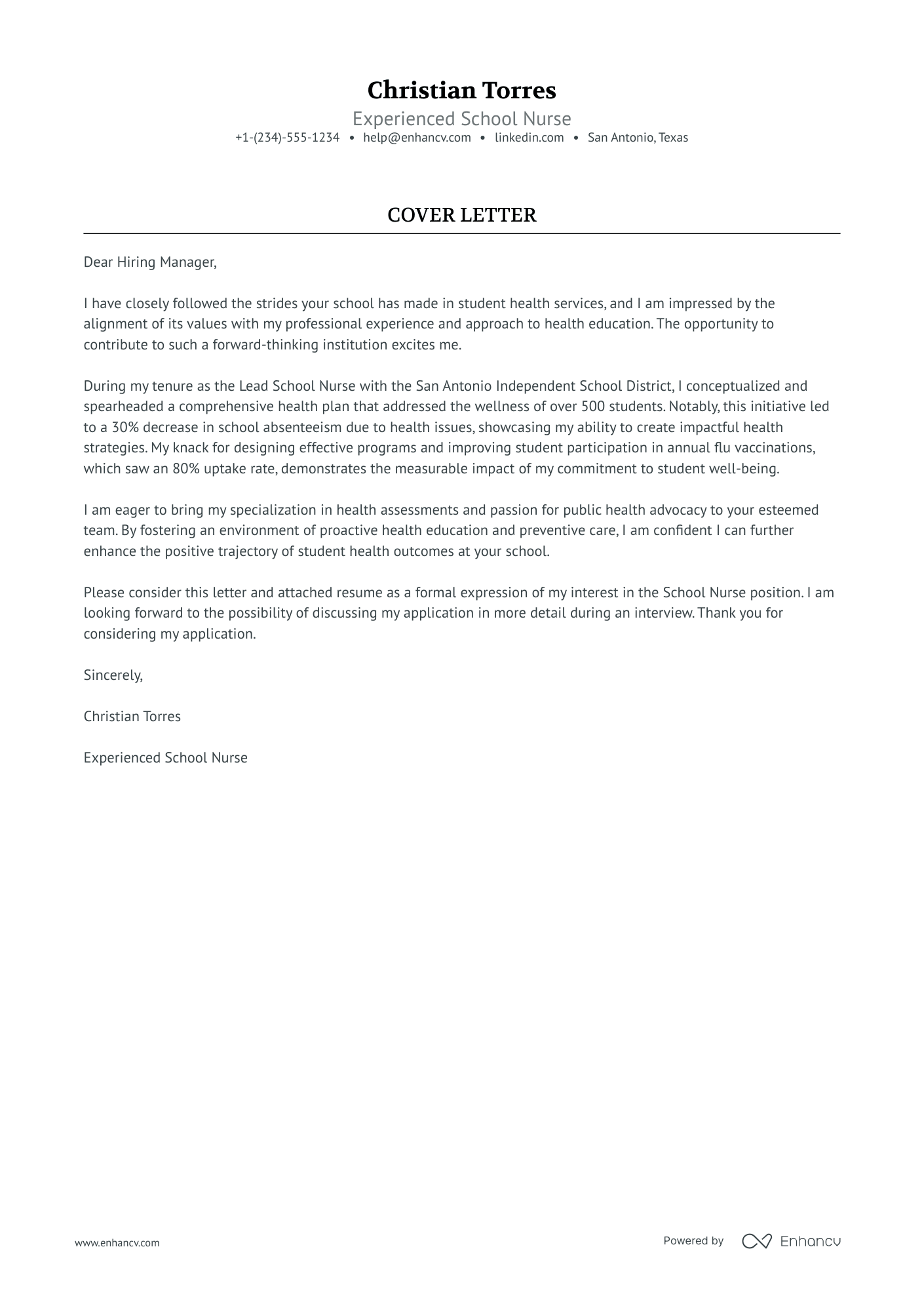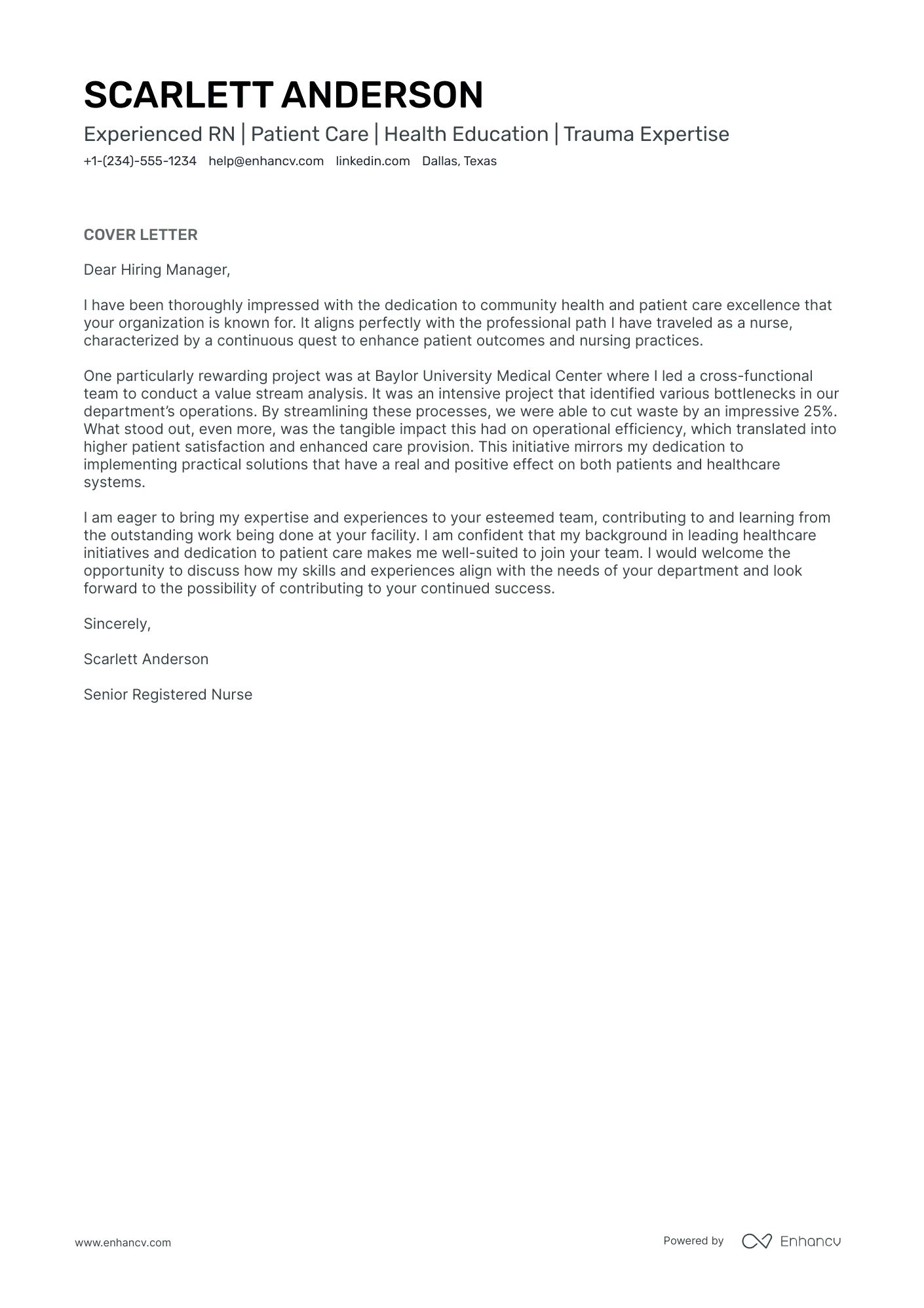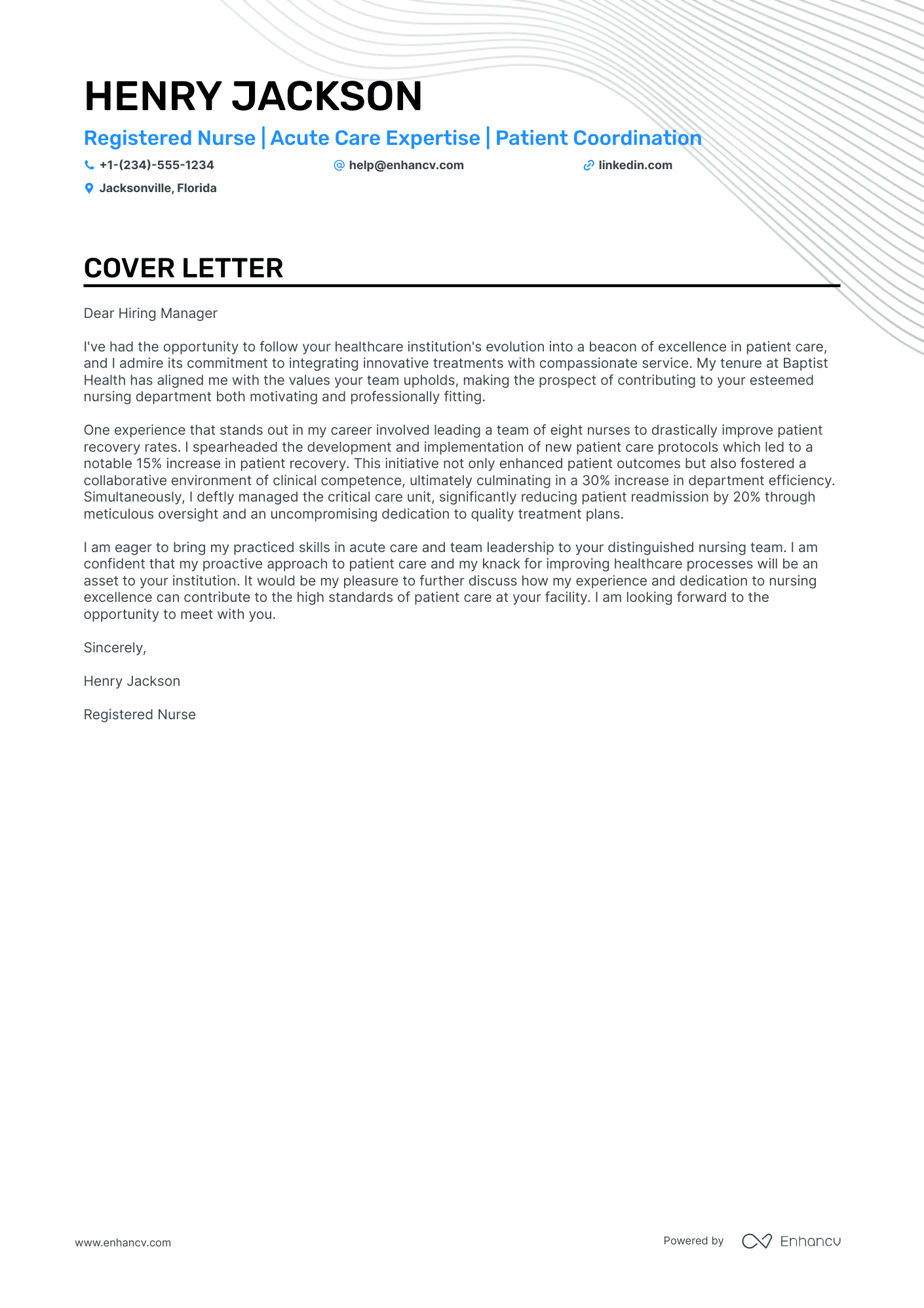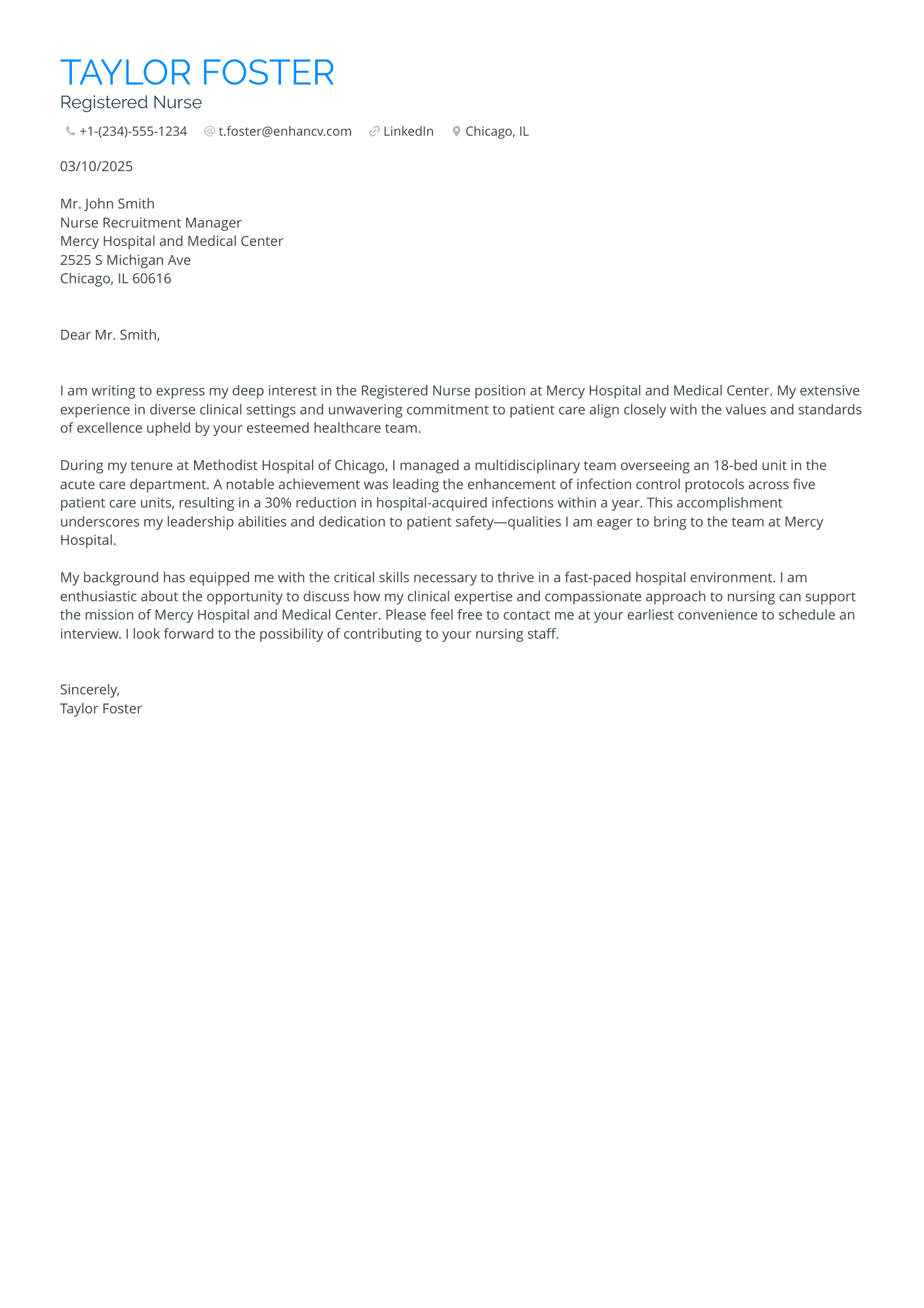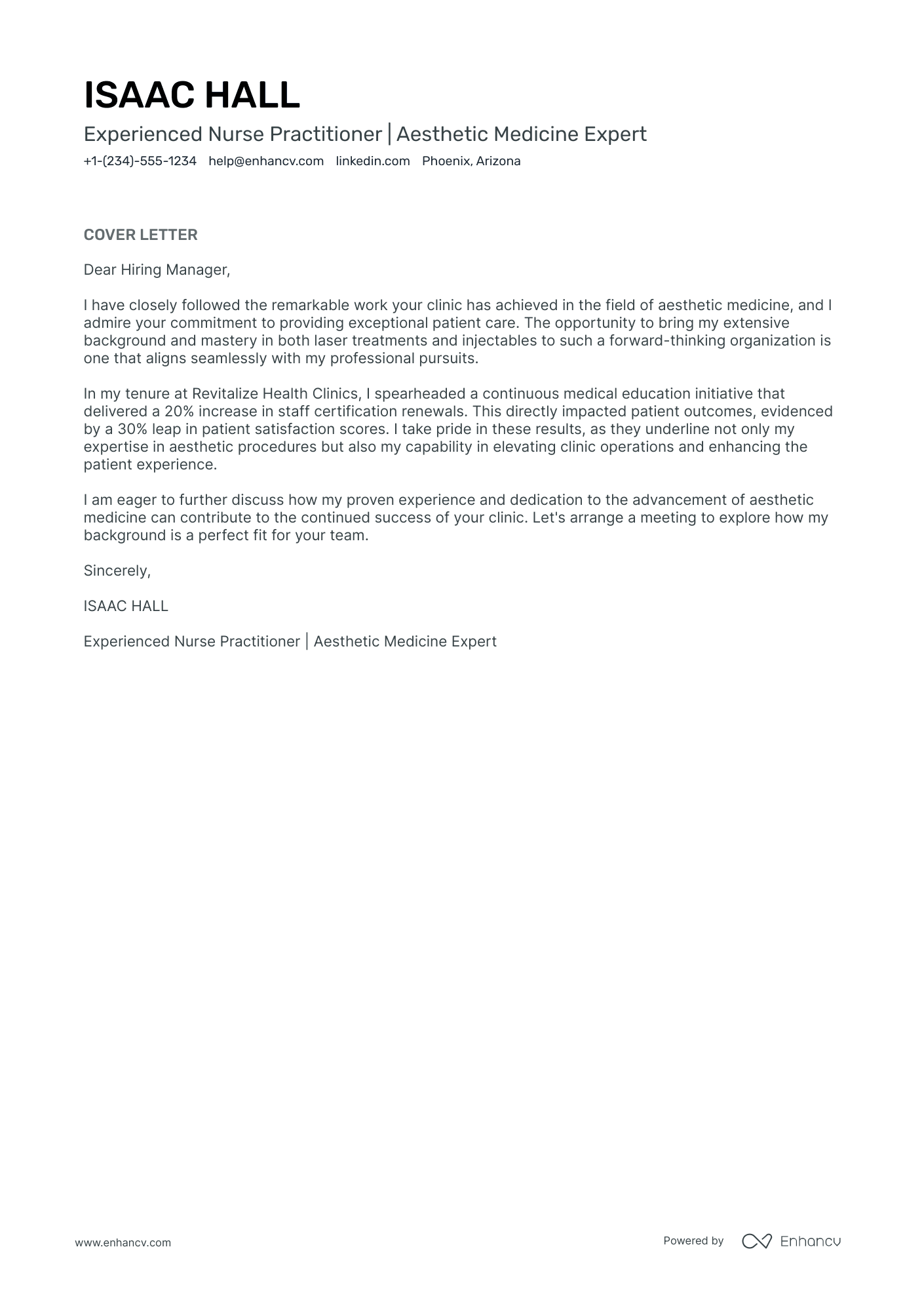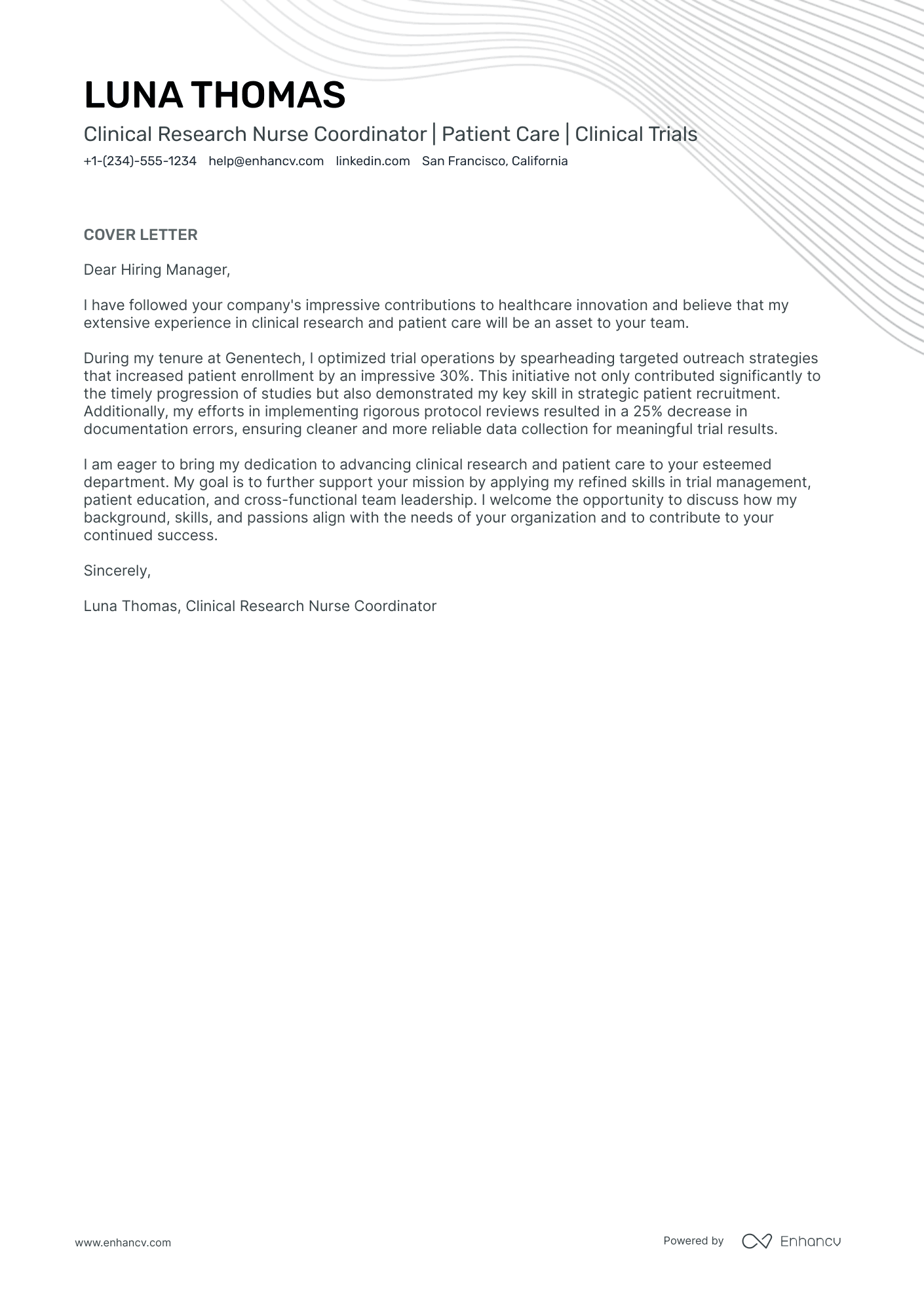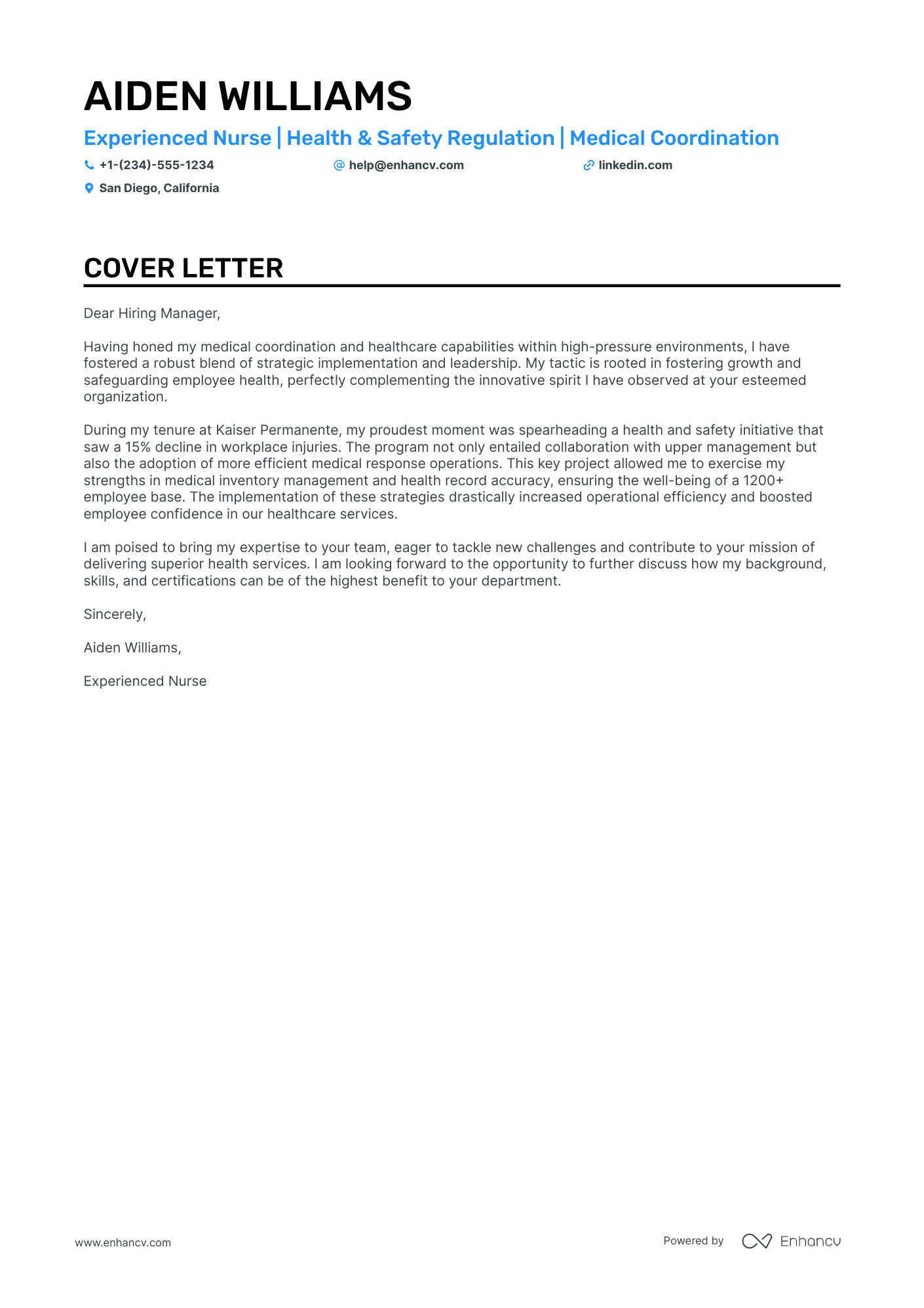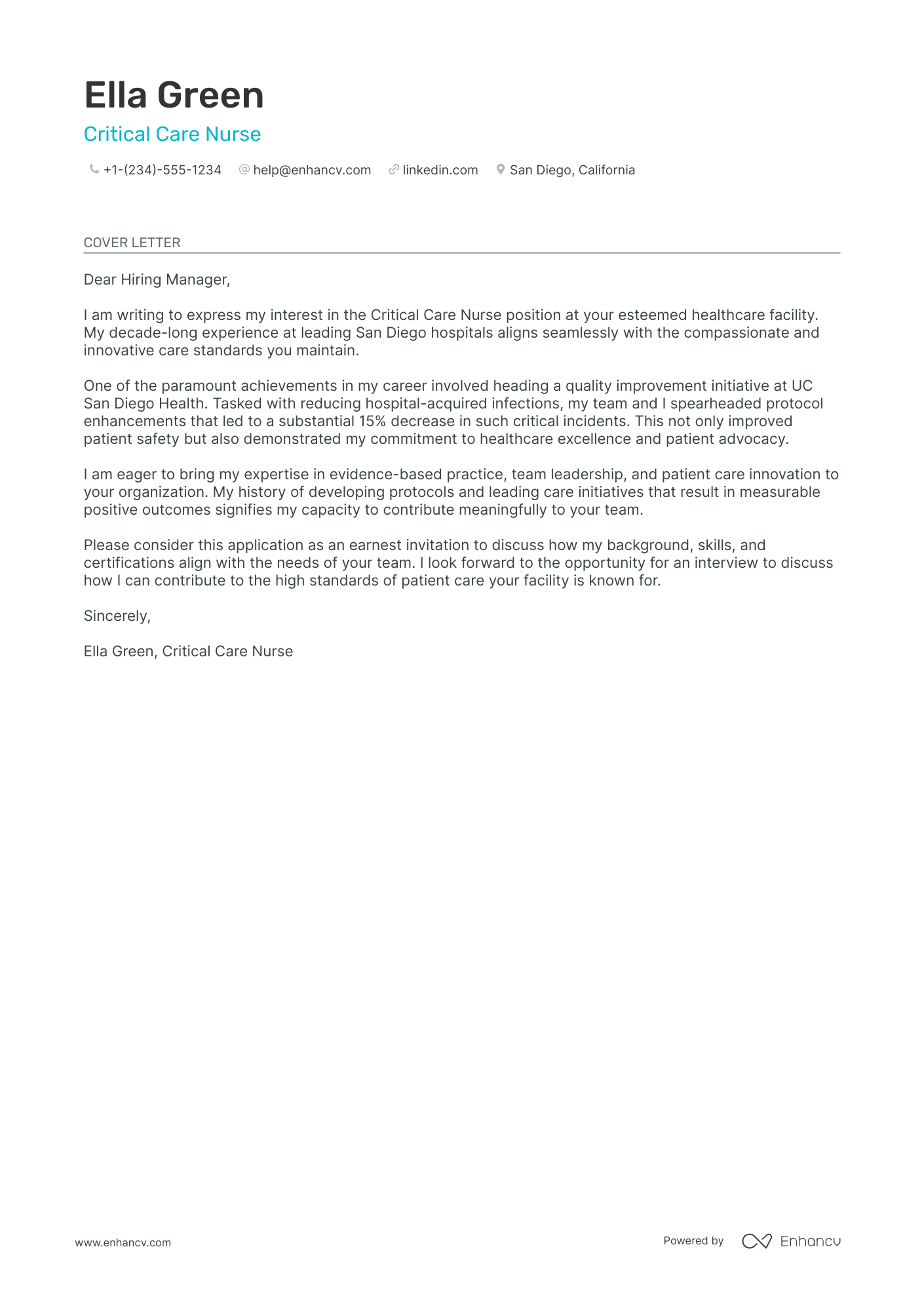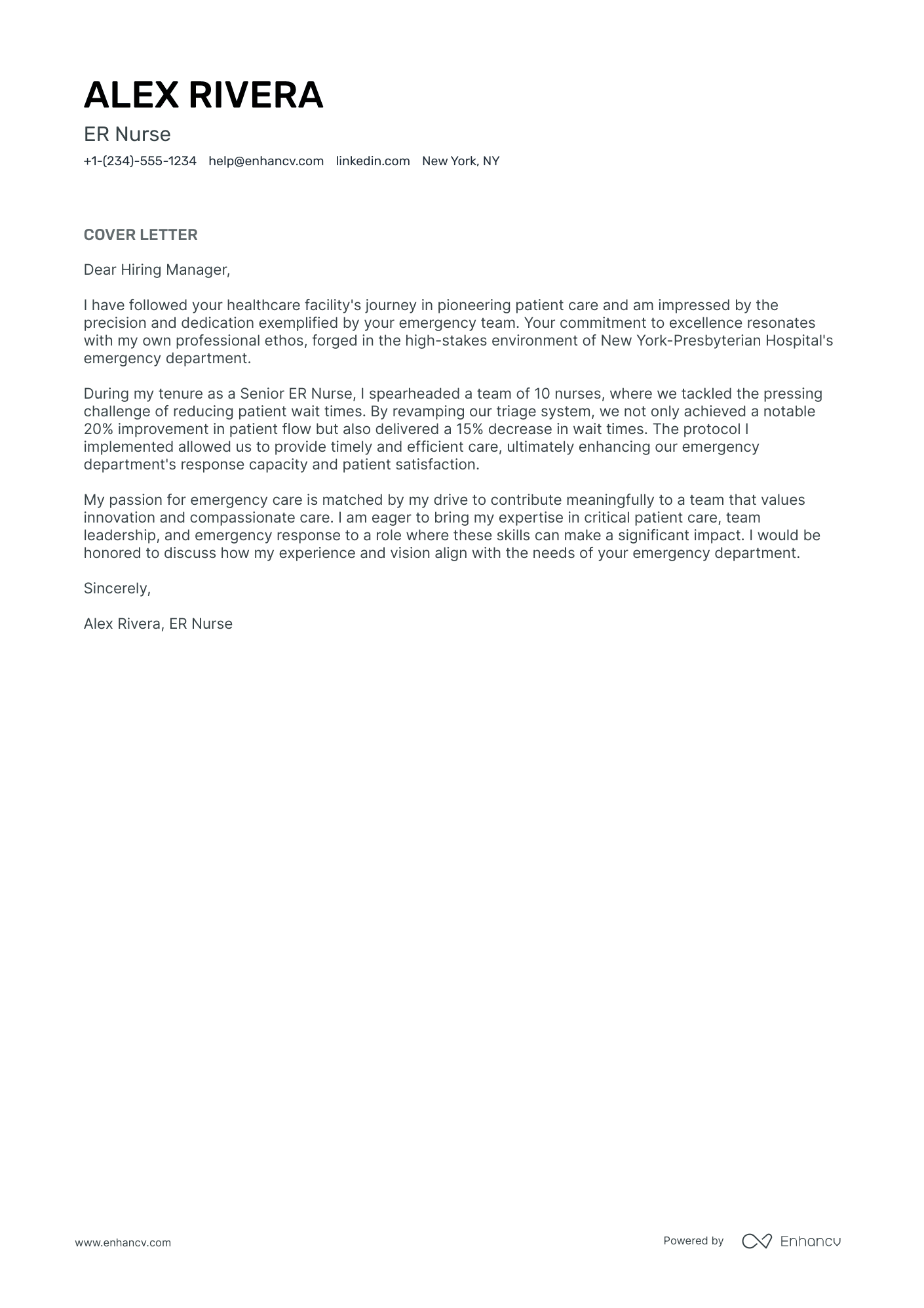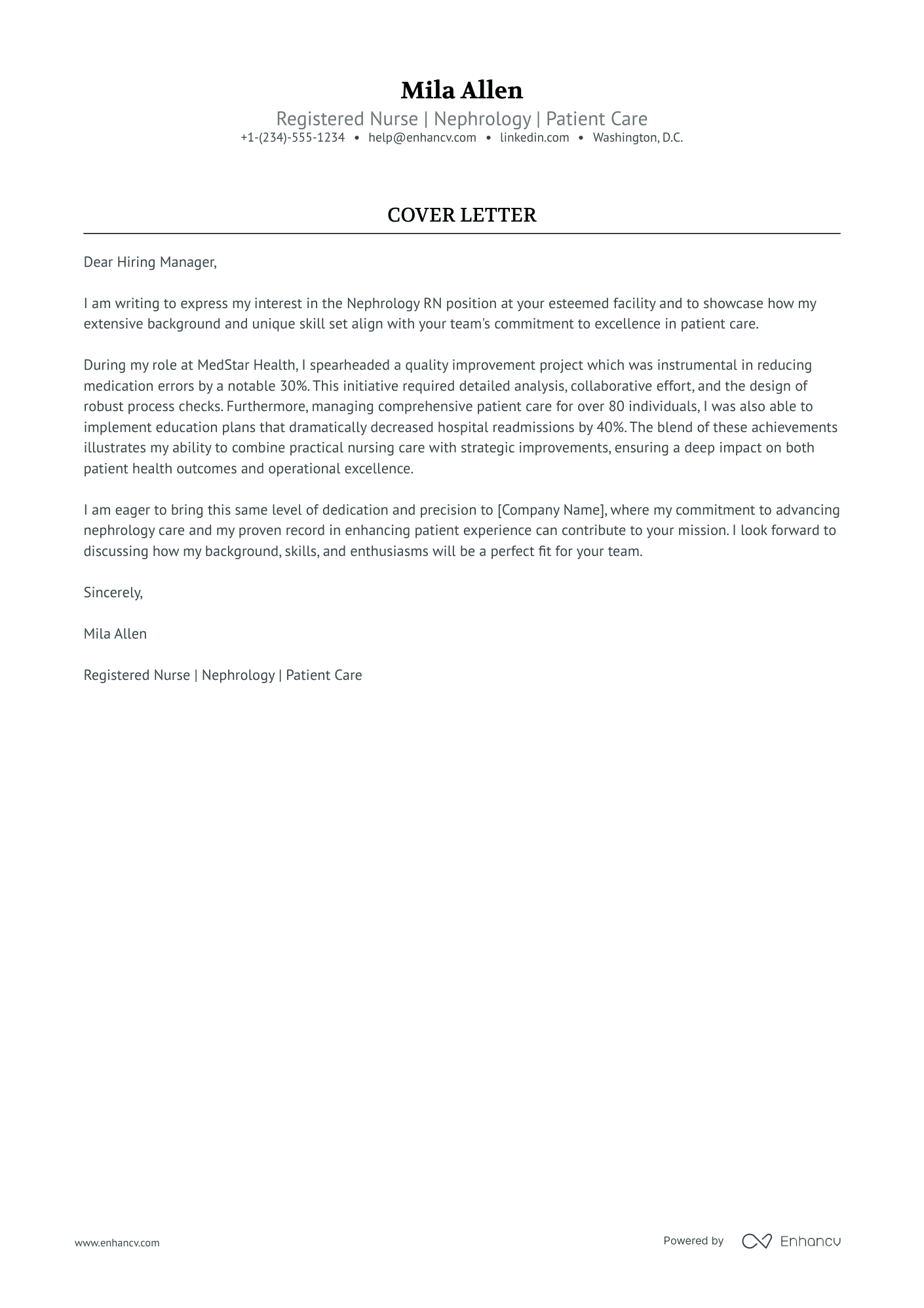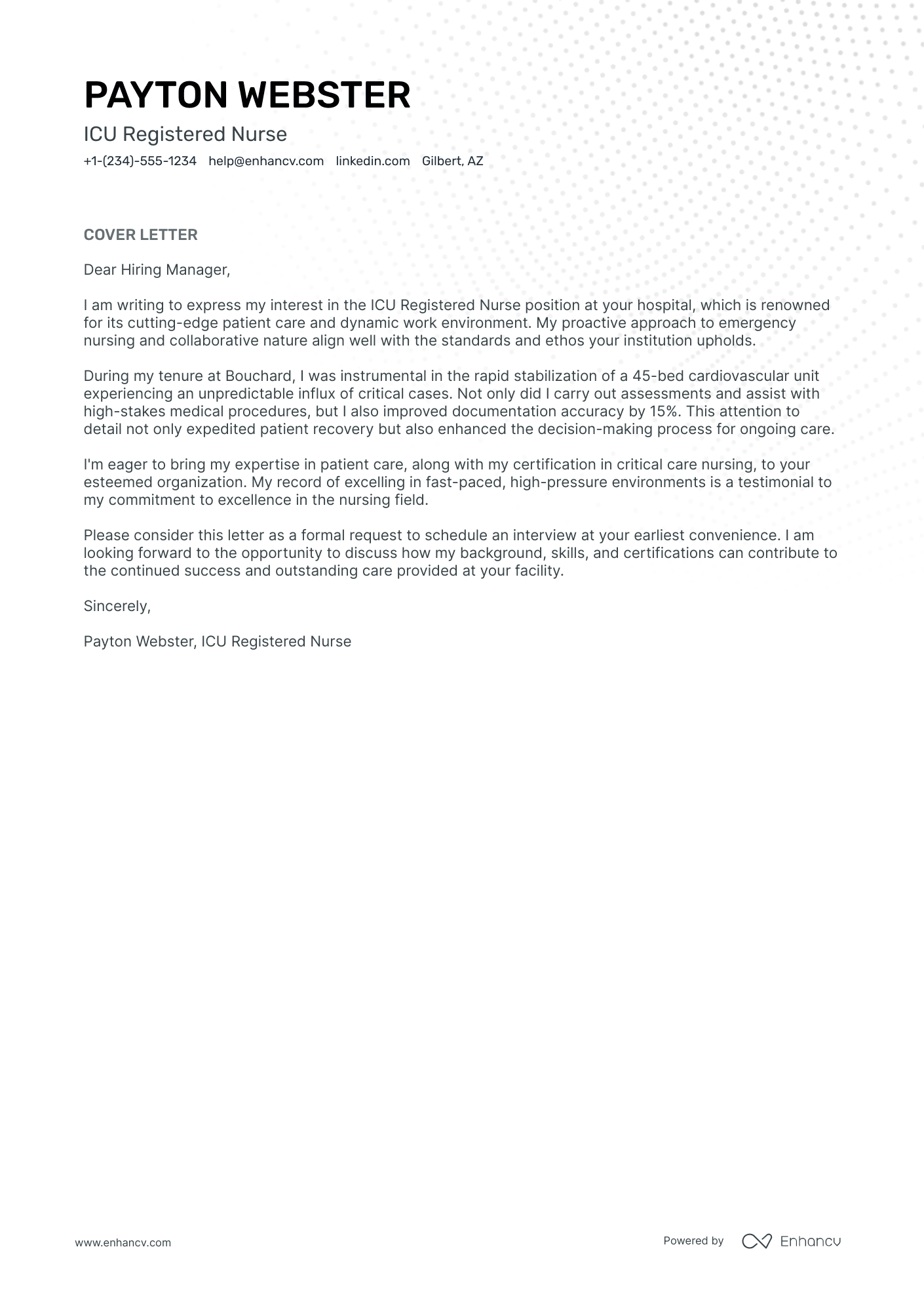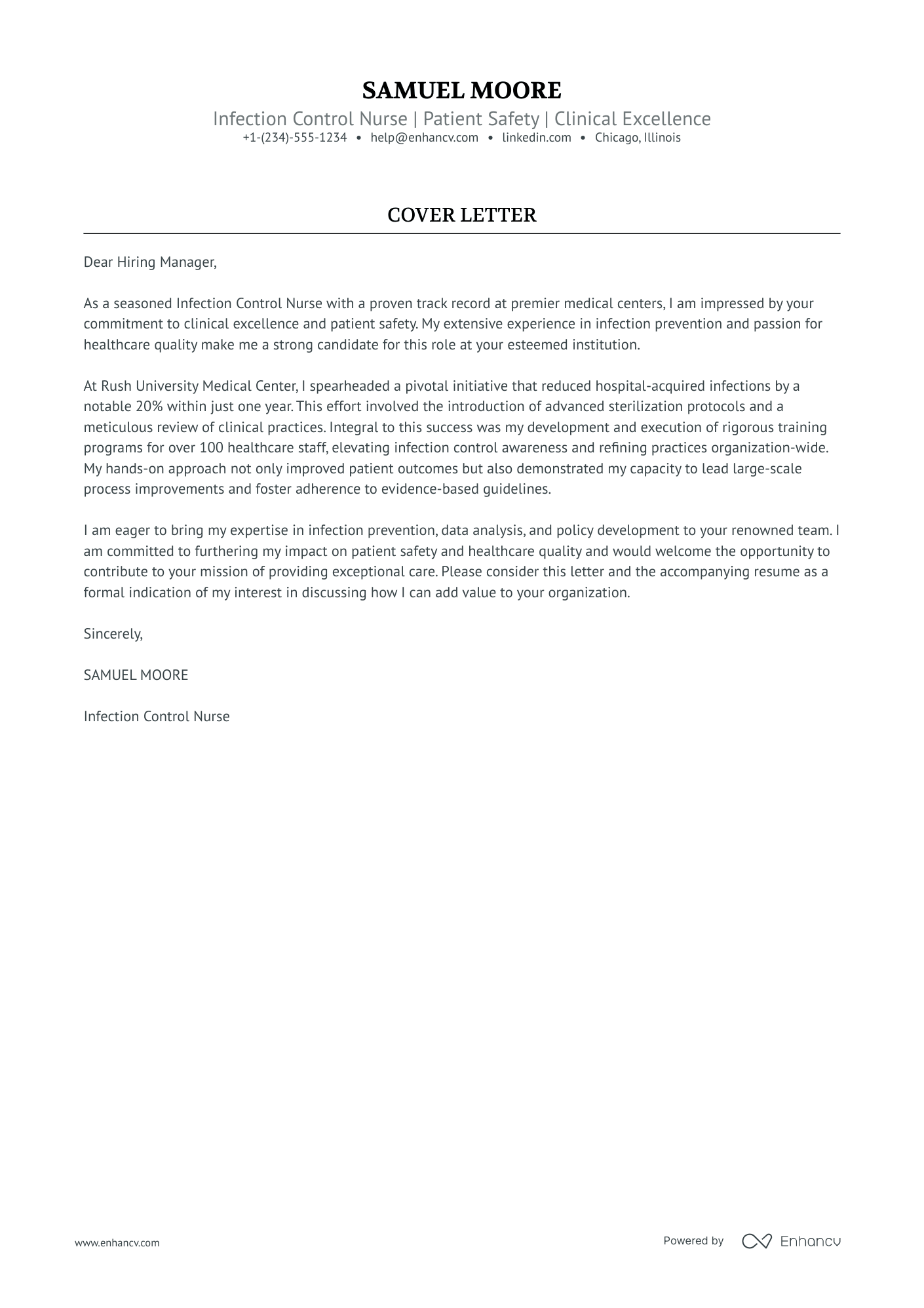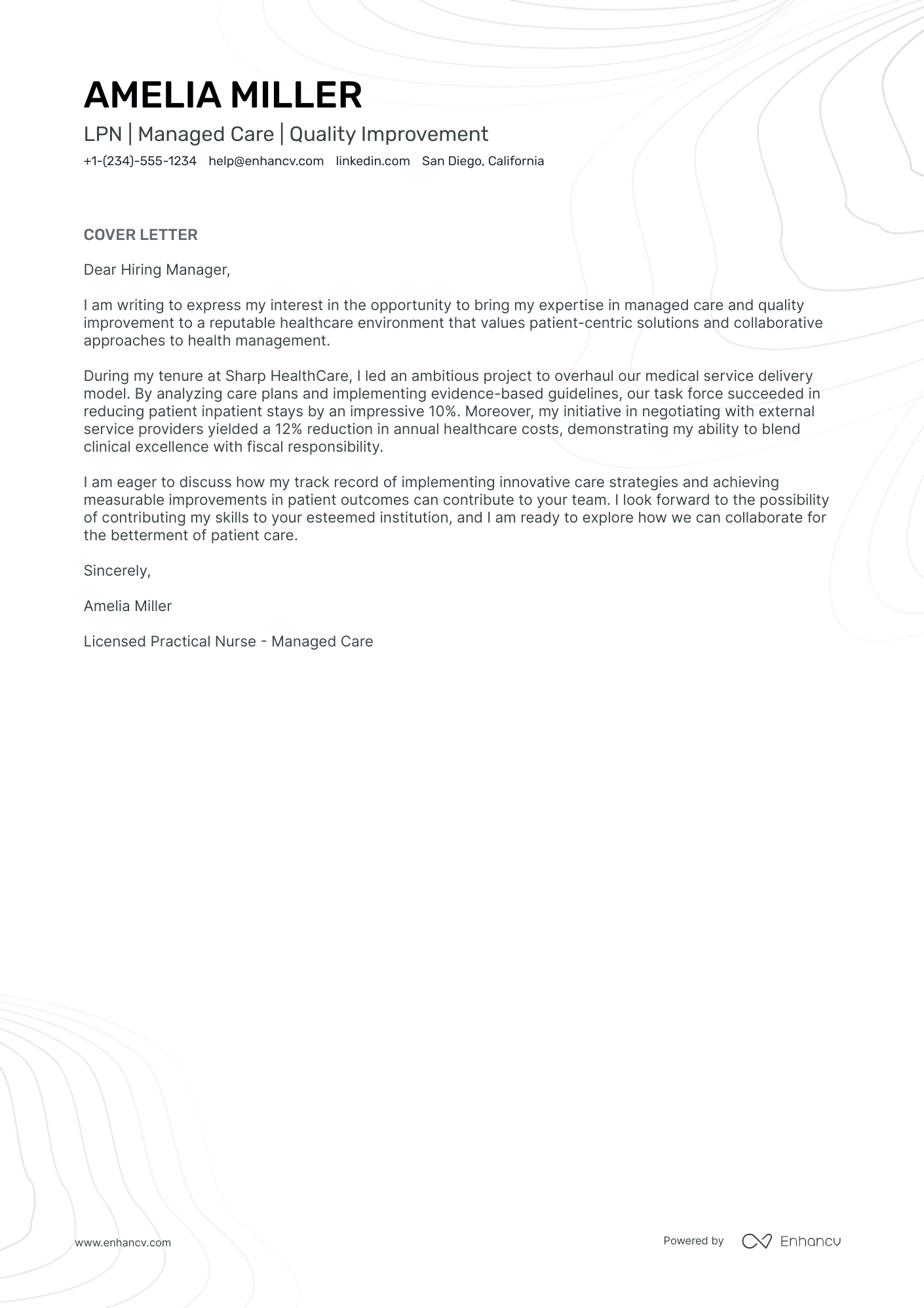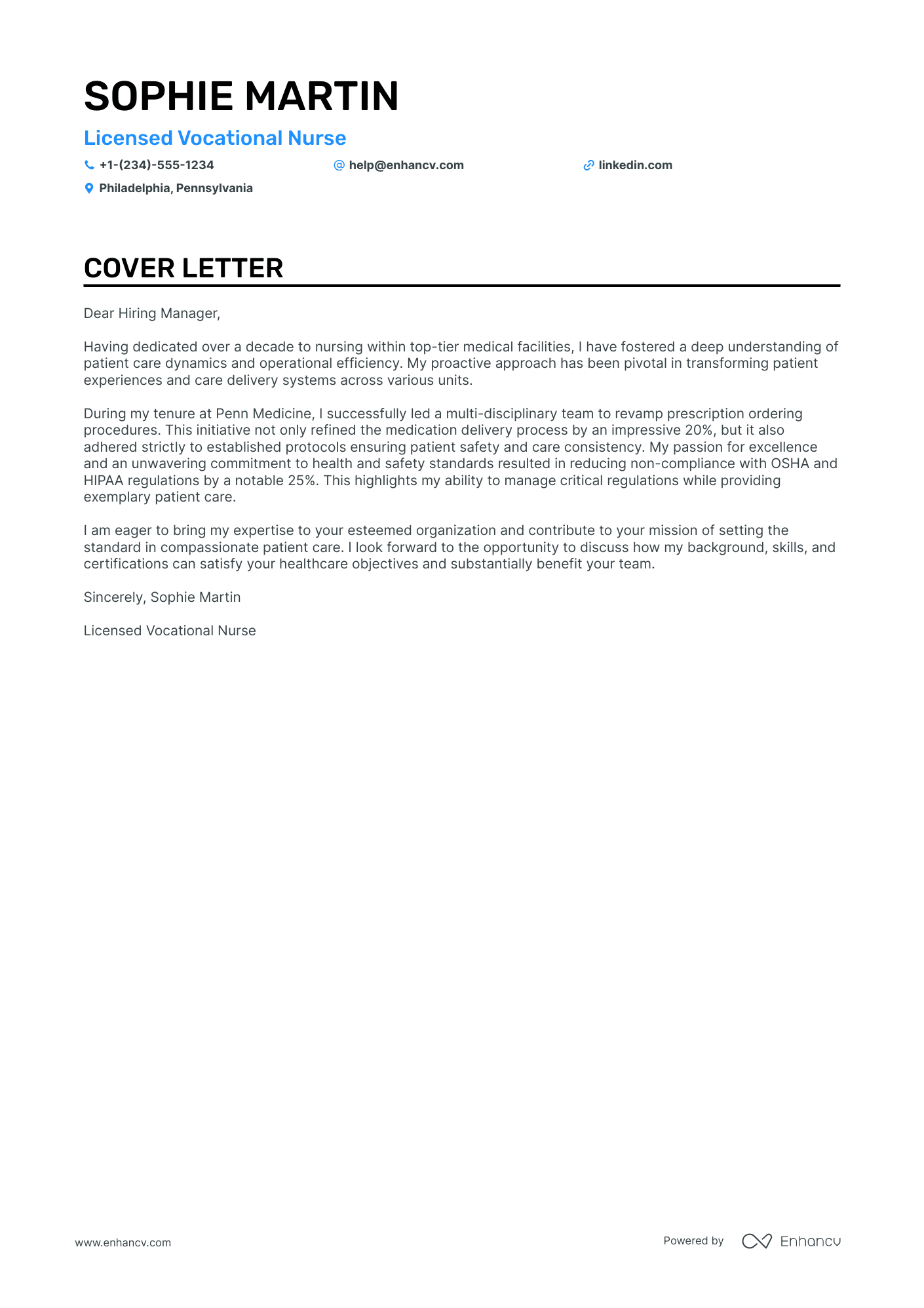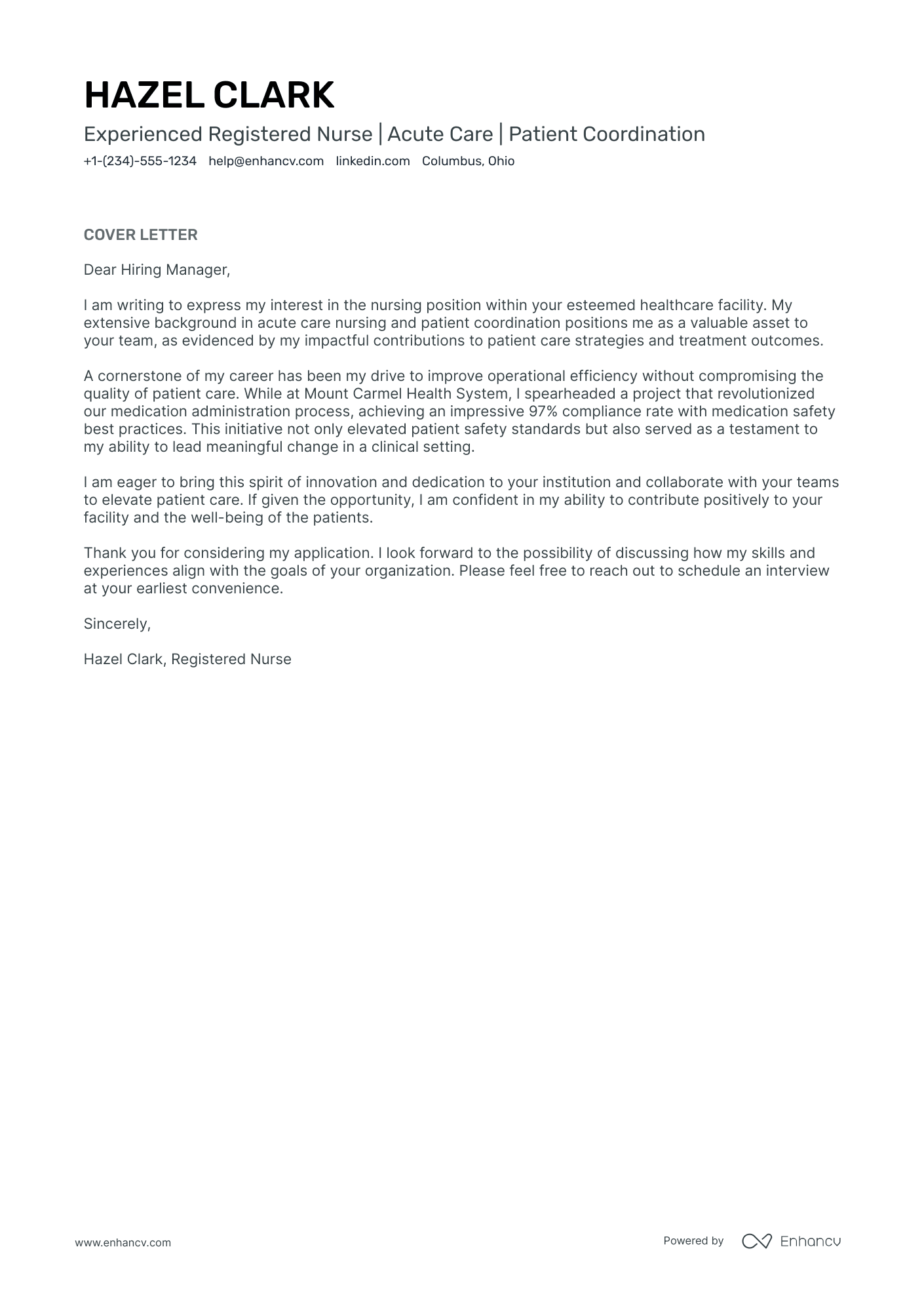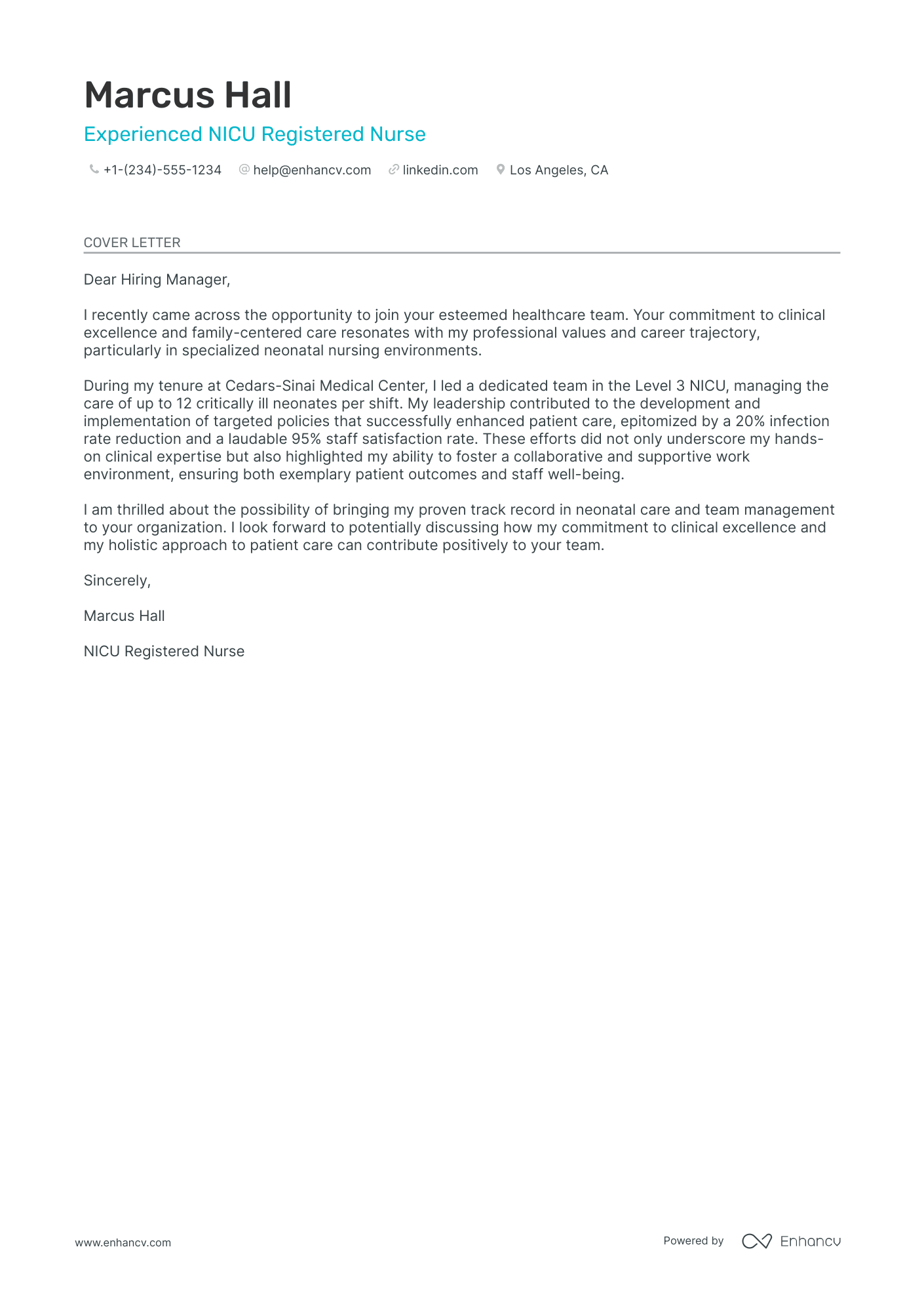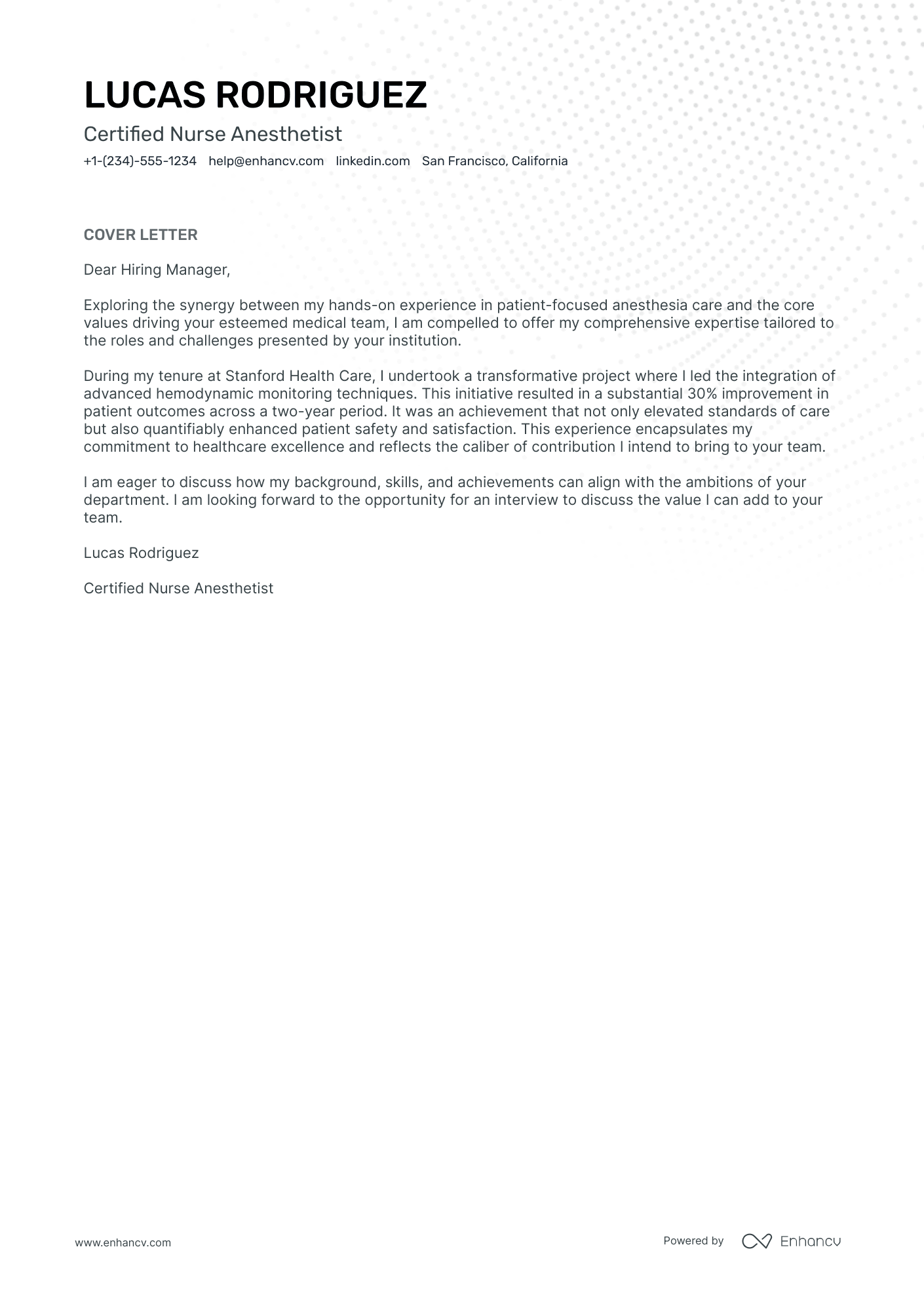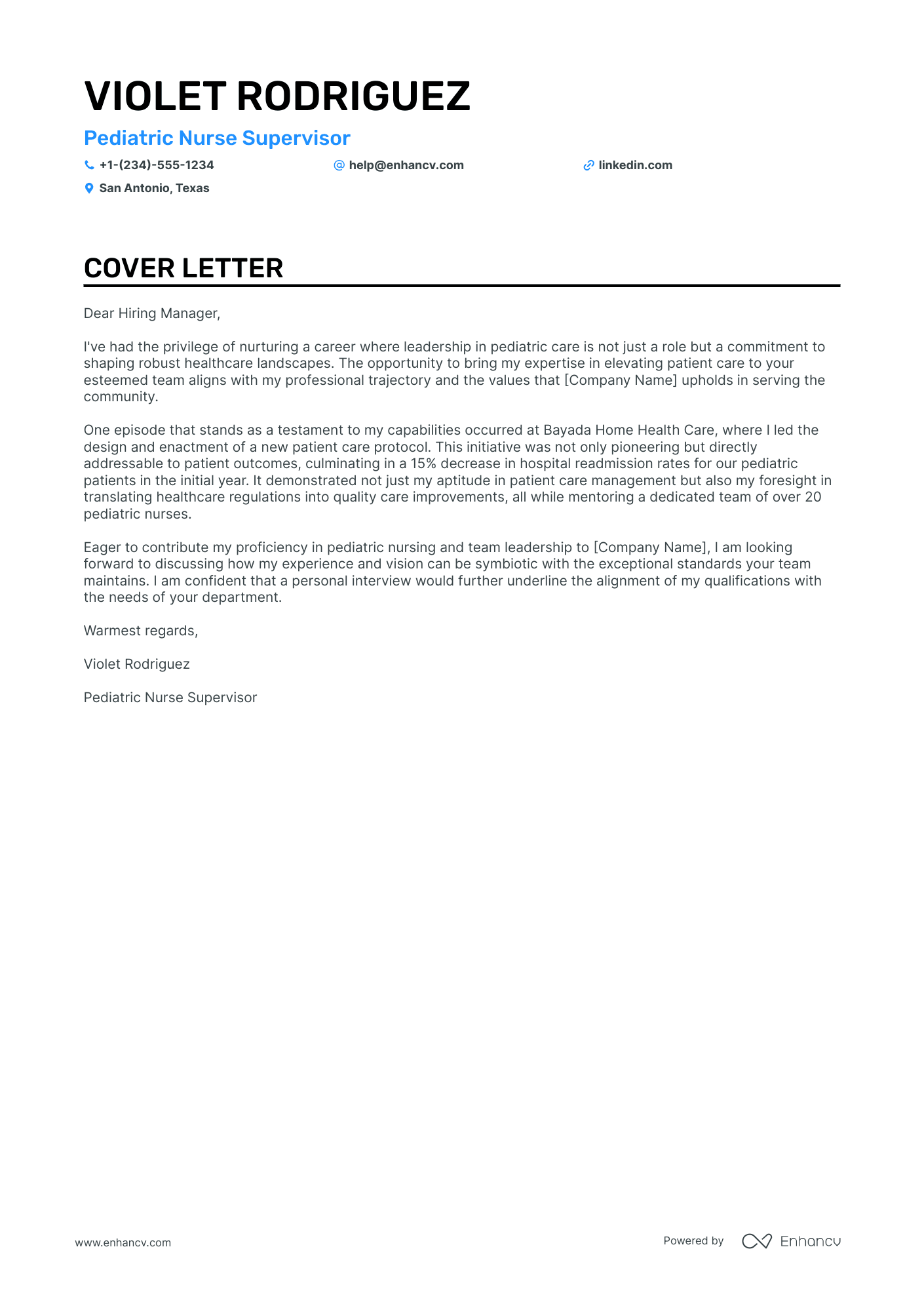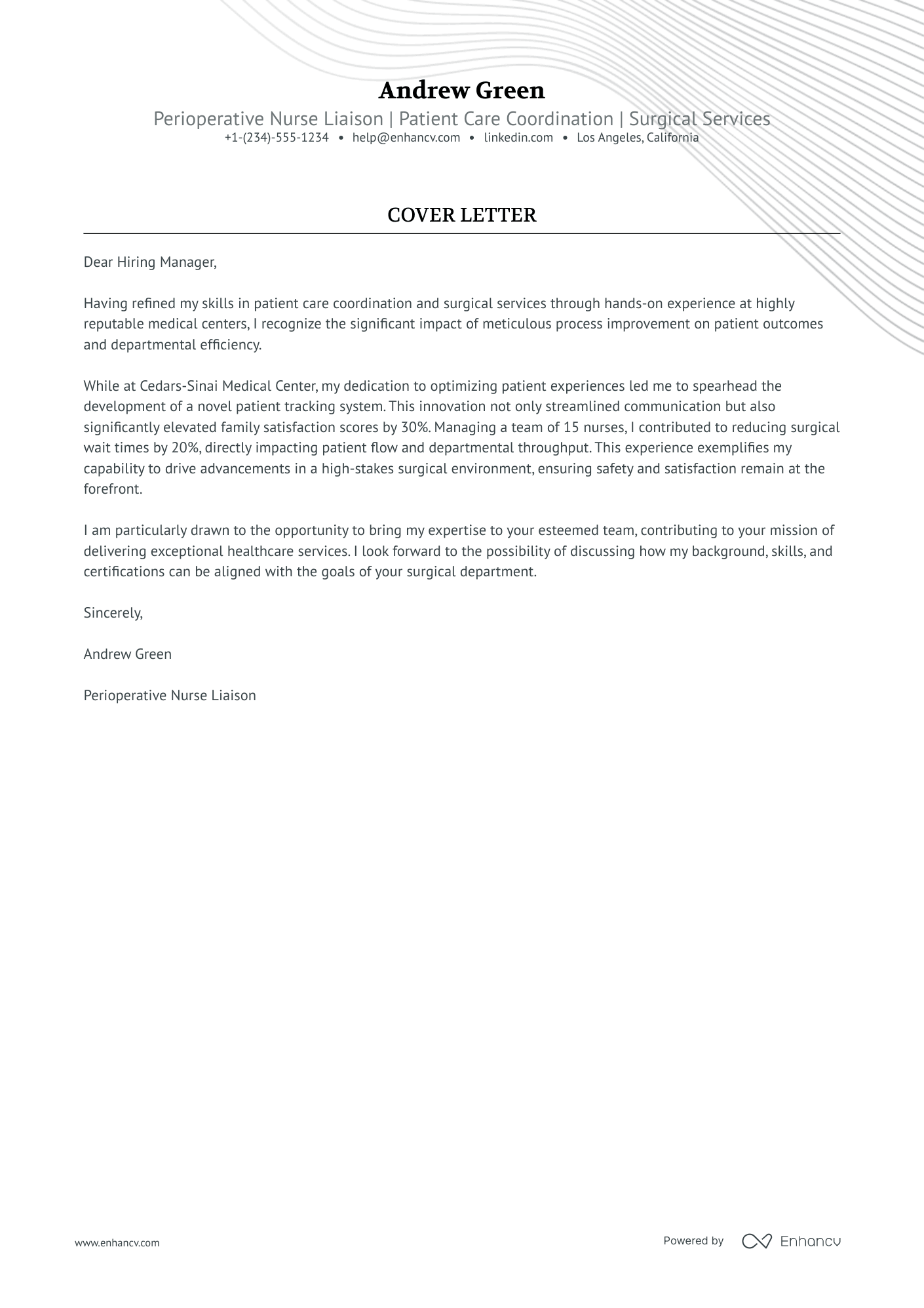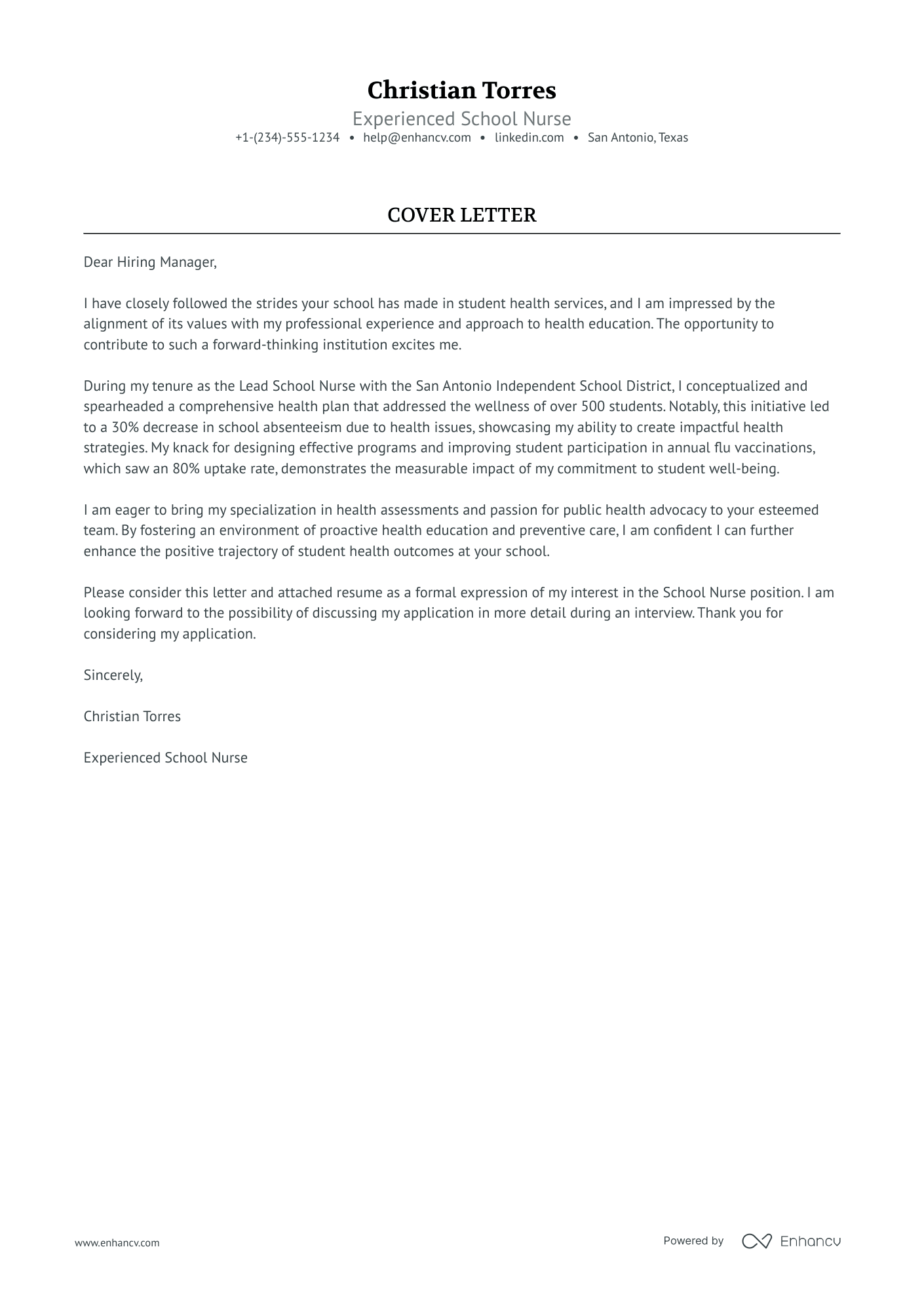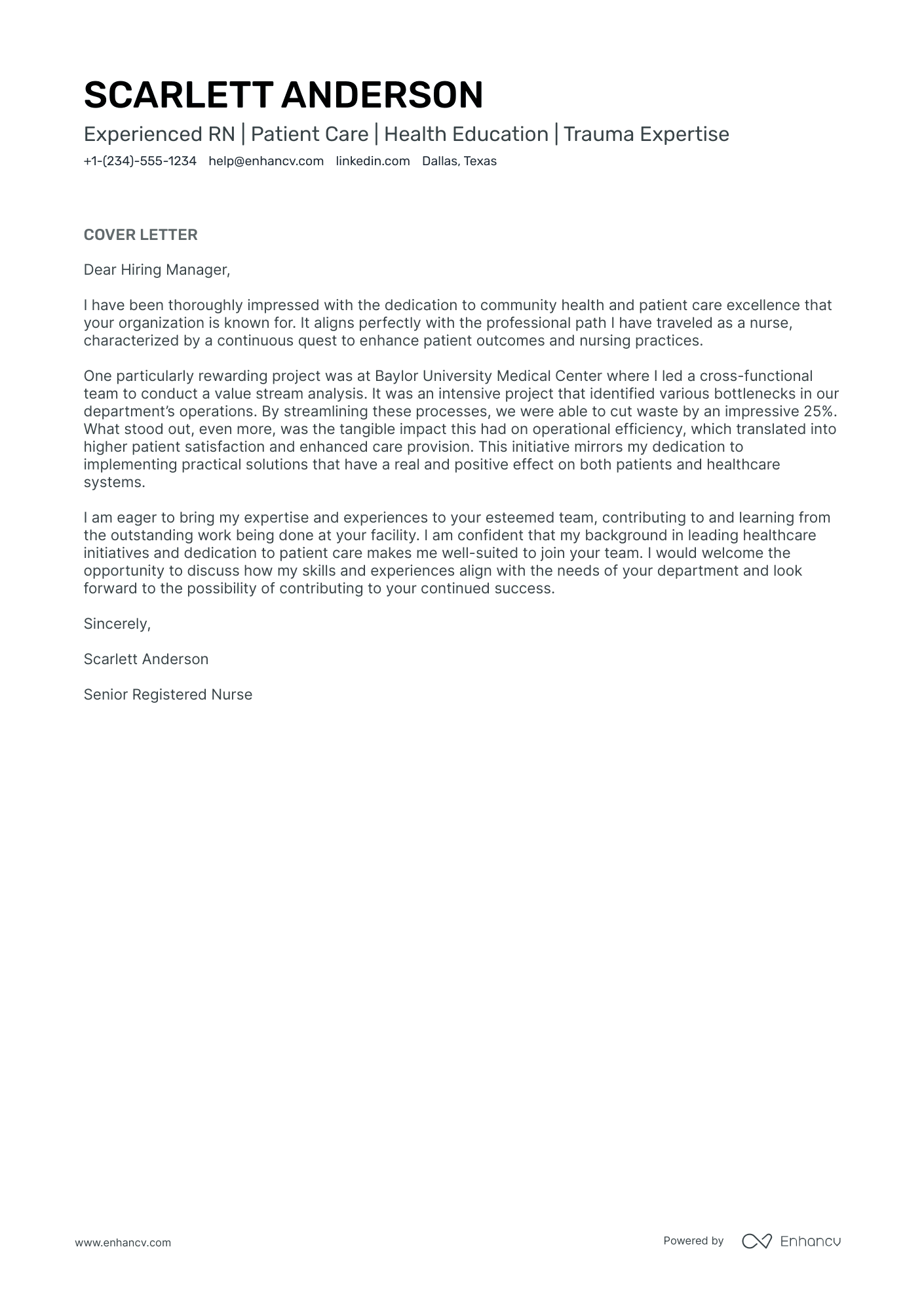Being a nurse is more than a job—it’s a calling. Every day, nurses face high-pressure situations, long shifts, and the emotional weight of patient care. The demands of the job can be overwhelming, but the best nurses know how to stay composed, think critically, and provide compassionate care even in the most stressful moments.
At the same time, pressure should never come at the cost of patient safety or well-being. New graduate nurses, registered nurses, and nurse practitioners all need to highlight their ability to meet job demands and prioritize patient care in their cover letters. This is true regardless of experience level.
A well-crafted nursing cover letter doesn’t just list your skills—it proves that you can thrive under pressure, collaborate with healthcare teams, and make a meaningful impact on patients’ lives. Let’s go over how to structure your cover letter to showcase your expertise and dedication.
Key takeaways
- A well-organized cover letter, like a precise care plan, ensures clarity and a strong first impression.
- Address the hiring manager by name and tailor your letter to the healthcare facility’s values.
- Highlight patient assessments, treatment planning, and interdisciplinary collaboration.
- Use metrics to demonstrate your impact, such as improved patient outcomes or efficiency improvements.
- Clinical rotations, certifications, and patient interactions can make your application noticeable.
- If you’re a newly graduated nurse, show you’re a good fit by emphasizing your transferable skills and experience.
Drop your resume here or choose a file.
PDF & DOCX only. Max 2MB file size.
Nurse cover letter example
Want to make a strong first impression? Our expertly crafted nurse cover letter templates help you build a professional, job-ready application with ease.
How to format a nursing cover letter
You might think that what you write in your cover letter matters most, but structure is just as important. Just like a well-organized surgical tray helps a procedure go smoothly, a clear and professional format makes your cover letter easier to read.
Hiring managers often skim documents before reading them fully, so a neat layout helps engage them. Keep reading to learn how to write a registered nurse cover letter or a nurse practitioner cover letter in the best format.
Contact information
Your resume already includes your contact details, but it’s important to repeat them in your cover letter for consistency and quick reference. Double-check for accuracy—missing a call or email because of a small typo could mean losing out on an opportunity.
Here’s how to format this section correctly:
- Place your full name at the top for easy identification.
- Include your phone number, professional email address, and physical address—the last part is important because nursing jobs are on site.
- Add the current date below your contact information.
- List the hiring manager’s name (if known), their title, and the hospital, clinic, or healthcare facility’s name and address.
Font, spacing, and margins
Healthcare professionals appreciate clarity and precision. Your cover letter design should reflect the same. Avoid clutter and ensure easy readability with these formatting tips:
- Stick to a professional font (e.g., Rubik, Lato) size 10 to 12—or the same as in your resume.
- Use single spacing and one-inch margins for a legible layout.
- Keep your text left-aligned for a clean and professional appearance.
Our cover letter generator can help tailor your application in minutes. Just upload your resume, and you’ll get a polished, professional cover letter to match.
The top sections on a registered nurse cover letter:
- Header: Include your name, phone number, professional email, and physical address. You can also add your LinkedIn profile to match your resume and keep your application polished.
- Address & date: Below your contact info, add the current date, followed by the hiring manager’s name, title, and the healthcare facility’s name and address to maintain a formal structure.
- Greeting: Whenever possible, address the hiring manager by name to show professionalism and attention to detail—both key traits in nursing.
- Introduction: Start strong by highlighting your nursing experience, area of expertise (like critical care or pediatrics), and passion for patient advocacy.
- Body: Share specific examples of how you’ve improved patient outcomes, collaborated with healthcare teams, and used your clinical skills in high-pressure settings.
- Closing: Wrap up by expressing enthusiasm for the role, reinforcing your commitment to compassionate care, and inviting the recruiter to connect with you.
Key qualities recruiters search for in a nurse’s cover letter:
- Clinical expertise: Recruiters look for nurses with strong clinical skills, including patient assessment, medication administration, and proficiency in medical technologies to ensure safe and effective patient care.
- Compassion and patient advocacy: Nursing requires empathy and a commitment to advocating for patients' needs, guaranteeing they receive the best possible care and support.
- Critical thinking and problem-solving: Nurses must quickly assess patient conditions, make informed decisions, and adapt to rapidly changing situations in high-stress environments.
- Collaboration and communication: Strong teamwork and communication skills are essential for coordinating with doctors, specialists, and support staff to provide seamless patient care.
- Adaptability in fast-paced settings: Whether working in a hospital, clinic, or long-term care facility, nurses must handle unpredictable situations, manage multiple patients, and remain composed under pressure.
- Commitment to continuous learning: The healthcare field is rapidly evolving and recruiters value nurses who pursue ongoing education, certifications, and training to stay current with best practices and medical advancements.
While a traditional cover letter is the standard for nursing positions, some healthcare employers may request a more concise format, such as an e-note. A full cover letter is typically preferred but check out the table below for the differences.
Cover letter vs. e-note
| COVER LETTERS | E-NOTES |
|---|---|
| The classic way to go | Easier to read on mobile |
| Follow standard business letter format | Follow a standard email format |
| More formal and longer | Less formal than a cover letter and shorter than one page |
| Enclosed as a separate printed document/attachment | Written directly in the email body |
Now that you have the structure in place, let’s focus on the content—starting with the greeting.
How to write your nurse cover letter salutation
Think of your cover letter greeting like the first moments with a new patient—it sets the tone for the entire interaction. A warm, professional, and well-researched salutation establishes trust and shows personalization. It's like tailoring care to a patient's needs.
If the hiring manager’s name isn’t listed in the job posting, do some research on the facility. Check the hospital or clinic’s website, their LinkedIn, or even call them up to find out who oversees hiring for the nursing team. Addressing your cover letter to a specific person demonstrates attention to detail—an essential skill in nursing, where precision can make all the difference in patient outcomes.
If you can’t find the hiring manager’s name, avoid outdated and impersonal greetings like “Dear Sir/Madam.” Instead, use a professional alternative that keeps your letter engaging and relevant to healthcare settings.
Professional greetings for a nursing cover letter
- Dear Hiring Manager,
- Dear [Healthcare Facility Name] Nursing Team,
- Dear [Department Name] Nurse Manager, (e.g., Dear Emergency Department Nurse Manager)
- Greetings, [Hospital or Clinic Name] Patient Care Team,
- Dear [Healthcare Facility Name] Nursing Leadership,
Now that you’ve set the right tone with your greeting, let’s move on to your introduction.
How to write your nurse cover letter introduction
Your cover letter introduction needs to be as impactful as a well-executed triage assessment. This will quickly convey the most important details while making a strong first impression.
This is your opportunity to illustrate your passion for patient care, summarize your key nursing qualifications, and demonstrate your enthusiasm for the role.
A strong introduction has to answer these essential questions:
- Why are you interested in this position? Show genuine enthusiasm for the healthcare facility and its commitment to patient-centered care.
- What makes you a strong candidate? Highlight a key skill, certification, or experience that sets you apart—just like a well-rounded care plan addresses a patient’s specific needs.
- How can you add value? Demonstrate that you understand the hospital or clinic’s mission and patient care goals, and explain how your expertise can help achieve them.
Cover letter intro
Just as every patient deserves compassionate, individualized care, every healthcare facility thrives with nurses who bring both skill and heart to their team. With five years of experience in critical care, I have witnessed firsthand how empathy, attention to detail, and evidence-based practice can make a profound difference in patients’ lives. I deeply admire Mayo Clinic’s commitment to interdisciplinary collaboration and patient education, and I would be honored to contribute my expertise to your team.
Save detailed examples for the body of your letter. The goal is to make the hiring manager want to keep reading.
How to write your nursing cover letter body
The body of your cover letter is where you show—not just tell—why you’re the right fit for the job. Instead of listing job duties (which you’ve already covered in your resume), focus on real experiences that highlight your clinical expertise, critical thinking, and patient-centered approach.
If you’re an experienced nurse practitioner, registered nurse, or professional nurse, this is your chance to talk about how you’ve improved patient care or made a positive impact on your team. Maybe you helped reduce hospital readmissions, introduced a new patient education initiative, or played a key role in mentoring new nurses. These details make your application stand out.
Here are some strong points to include:
- Clinical expertise in patient assessments, diagnostics, and treatment planning—showing that you make sound, evidence-based decisions.
- Quantifiable achievements like improving patient outcomes, reducing readmission rates, or streamlining workflows to boost efficiency.
- Collaboration with physicians, specialists, and staff to create a team-based approach to care that benefits both patients and colleagues.
- Process improvements where you introduced new protocols, improved patient education, or helped create a safer, more efficient work environment.
By sharing authentic examples, you’ll make your cover letter more engaging and show hiring managers the kind of impact you bring to a healthcare team.
Two approaches to structuring your cover letter body
The style you employ in writing your cover letter will depend on the facility and exact position. For a busy hospital, a bulleted list of achievements might be your best bet. For a nursing home, a warm storytelling approach works wonders.
Narrative approach
Storytelling is a powerful way to show who you are. Use a short anecdote to illustrate how you’ve applied your nursing skills in real-world situations. This could be improving patient outcomes, implementing a new process, or handling a high-pressure emergency.
Cover letter body example #1
As a nurse practitioner in a busy primary care clinic, I once treated a patient with poorly managed diabetes who frequently missed follow-ups. Recognizing the barriers they faced, I collaborated with a dietitian and social worker to develop a tailored plan. Within six months, their A1C levels improved significantly, and they became an active participant in their care. This experience reinforced my belief in holistic, patient-centered treatment—an approach I am eager to bring to Cleveland Clinic.
Bulleted highlights approach
For a structured, results-driven approach, use three to five bullet points to present your most relevant accomplishments. This format makes it easy for hiring managers to scan and quickly grasp your impact, perfect for busy environments.
Cover letter body example #2
- Managed an average caseload of 20+ patients per shift, ensuring high-quality care in a fast-paced hospital environment.
- Spearheaded a fall prevention initiative, reducing patient falls by 30% in a six-month period.
- Collaborated with a multidisciplinary team to implement a sepsis screening protocol, decreasing response times and improving survival rates.
- Trained and mentored newly hired nurses, improving onboarding efficiency and knowledge retention.
- Achieved 97%+ patient satisfaction scores by focusing on compassionate, evidence-based care and patient education.
Worried that you don’t have any aces up your sleeves as a recently graduated nurse? You’ve still got plenty to share.
How to write a cover letter for a new grad nurse
Student nurse cover letters may not rely on extensive experience, but they can highlight relevant skills from clinical rotations, coursework, and volunteer work.
Tips for new nurses:
- Discuss a meaningful patient interaction: Even as a new grad nurse, you’ve likely had a moment where you made a difference in a patient’s experience. Sharing a brief story about how you provided comfort, solved a problem, or worked through a challenge can make your cover letter more compelling.
- Mention any certifications or specialized training: If you’ve earned BLS, ACLS, or PALS certifications, or completed coursework in areas like wound care, telemetry, or phlebotomy, include these to show your preparedness for hands-on nursing.
- Underline technology proficiency: Many hospitals use EMR/EHR systems like Epic or Cerner. If you’ve worked with these during clinicals, mentioning it can demonstrate your ability to adapt quickly to a fast-paced setting.
- Express familiarity with the hospital or unit: If you completed clinical rotations at the hospital you’re applying to, say so! This shows familiarity with their patient population, workflows, and values.
- Emphasize a strong work ethic: Nursing is demanding, and hiring managers value candidates who show resilience, dedication, and a willingness to take initiative. Highlight moments where you went above and beyond during clinical or in previous roles.
- Address any experience outside of nursing that’s relevant: If you’ve worked as a CNA, medical scribe, EMT, or even in customer service, connect it to nursing by emphasizing patient interaction, teamwork, and problem-solving skills.
You’ve got this—regardless of your experience level. Now, let’s see how to close your letter politely and effectively.
How to write the closing paragraph
Your cover letter closing should leave a lasting impression by reinforcing your qualifications, expressing gratitude, and inviting further discussion. This is your final opportunity to highlight how your skills align with the healthcare facility’s needs while showing enthusiasm for the role.
Briefly summarize why you’re an excellent fit, thank the hiring manager for their time, and express your interest in moving forward in the hiring process. A strong closing should also include a clear call to action, encouraging the recruiter to reach out for an interview.
Cover letter closing
I appreciate your time in reviewing my application and would welcome the opportunity to discuss how my clinical experience, commitment to patient-centered care, and collaborative approach align with Massachusetts General Hospital’s high standards. Please feel free to contact me at your convenience to schedule a conversation. I look forward to the possibility of contributing to your team and providing compassionate, evidence-based care to your patients.
Professional sign-offs for a nurse cover letter
Keep your tone polite and professional by expressing gratitude to the hiring manager for reviewing your application. Always conclude with a sign-off that suits your recipient.
- If the recipient’s name is known: “Sincerely,” “Best regards,” “Kind regards,” or “Warm regards.”
- If the recipient’s name is unknown: “Yours faithfully,” “Respectfully,” or “With appreciation.”
Always end with your full name and include a note that your resume is attached to ensure the recruiter doesn’t miss it.
Conclusion
Writing a nurse cover letter is about more than listing skills—it’s about demonstrating your clinical expertise, problem-solving ability, and commitment to patient care. Whether you're a nurse practitioner, registered nurse, or a new grad nurse, tailoring your cover letter to the employer and showing real impact will set you apart.
Nurse cover letter examples
By Role
